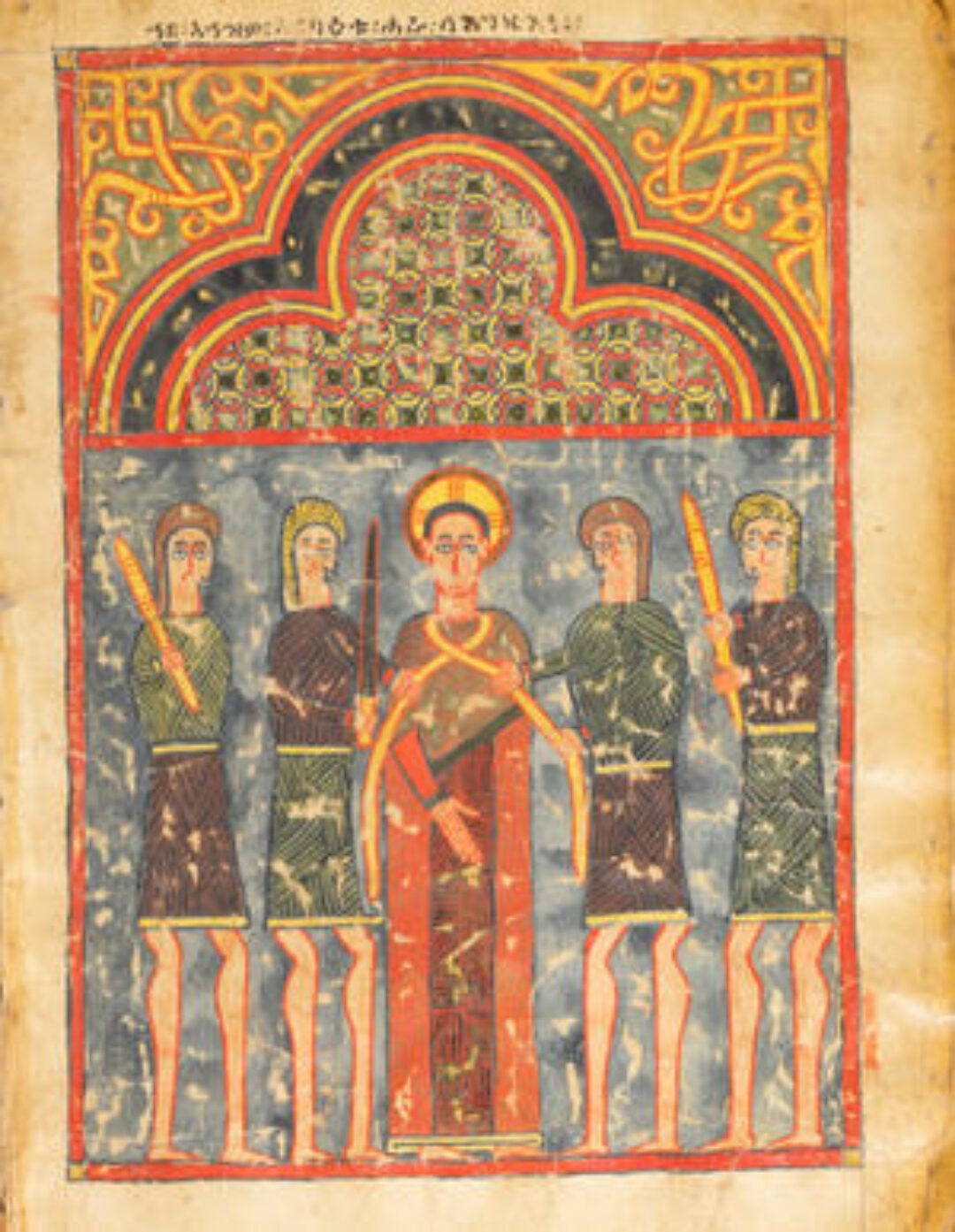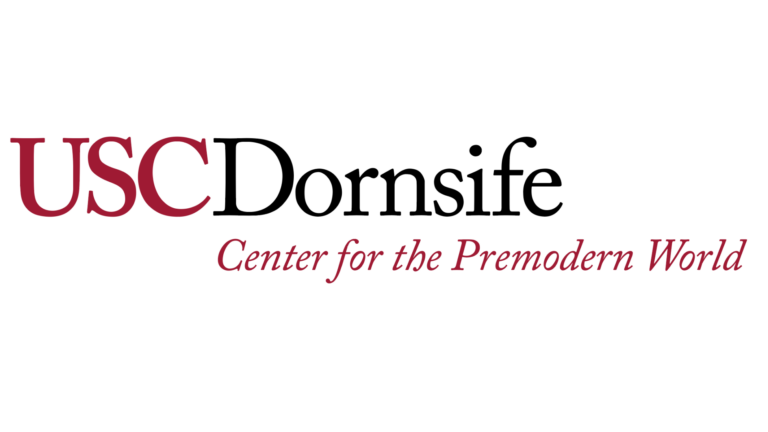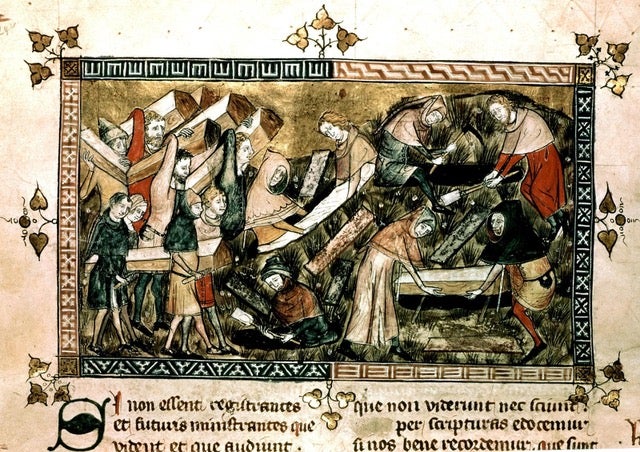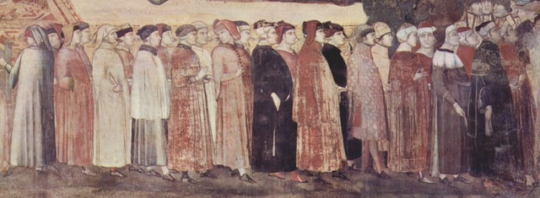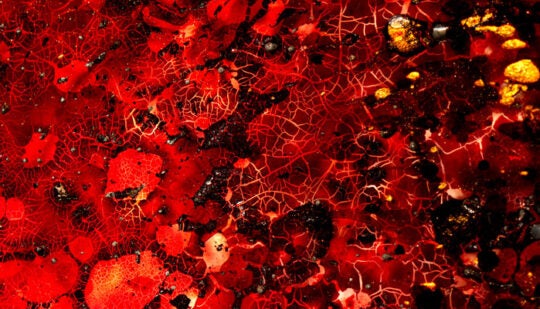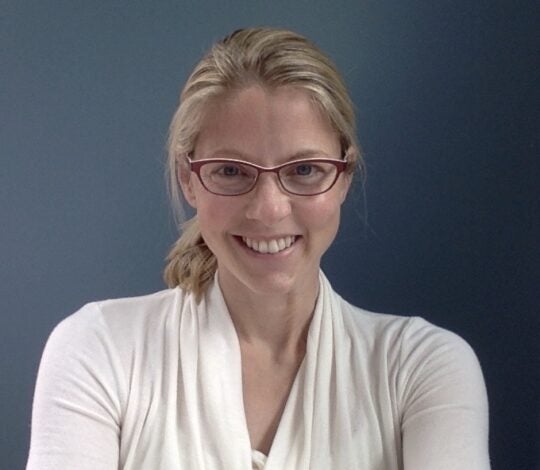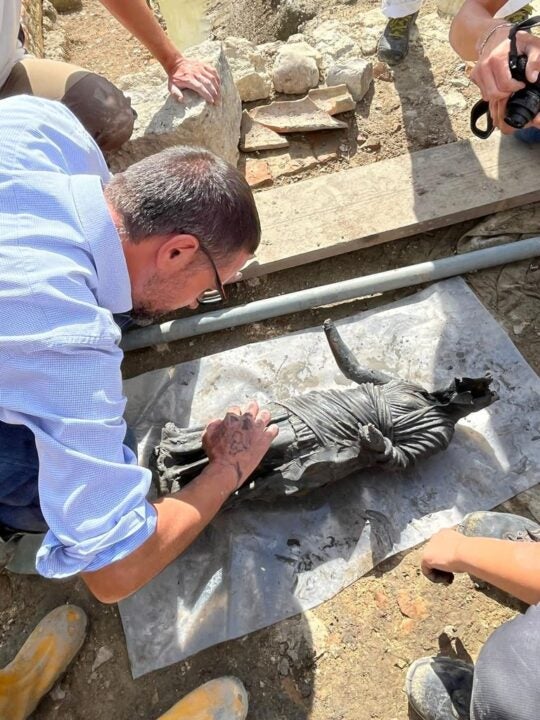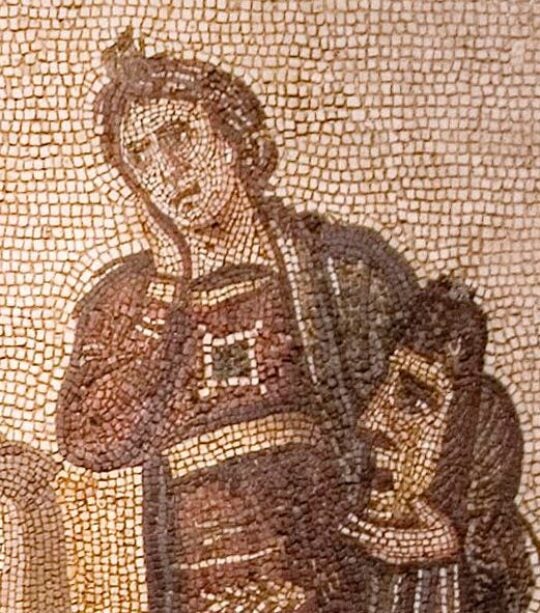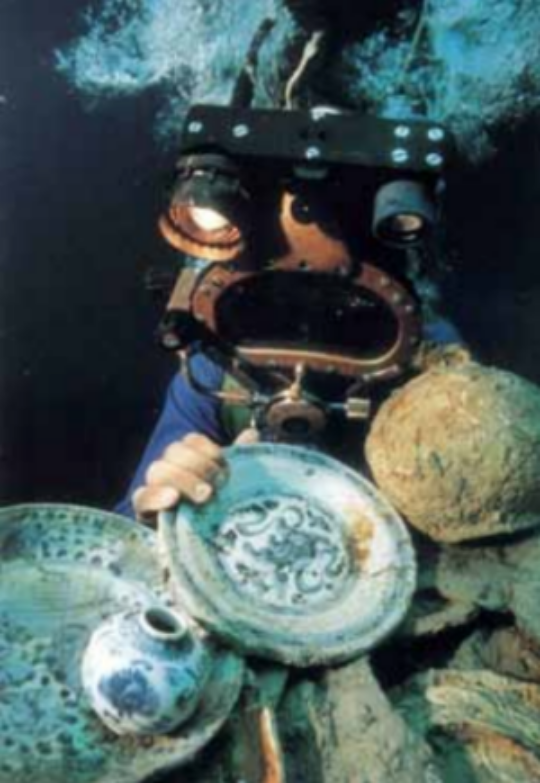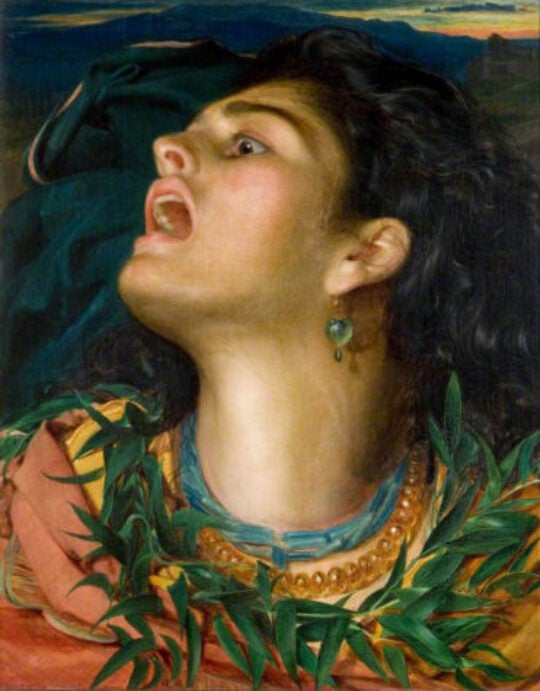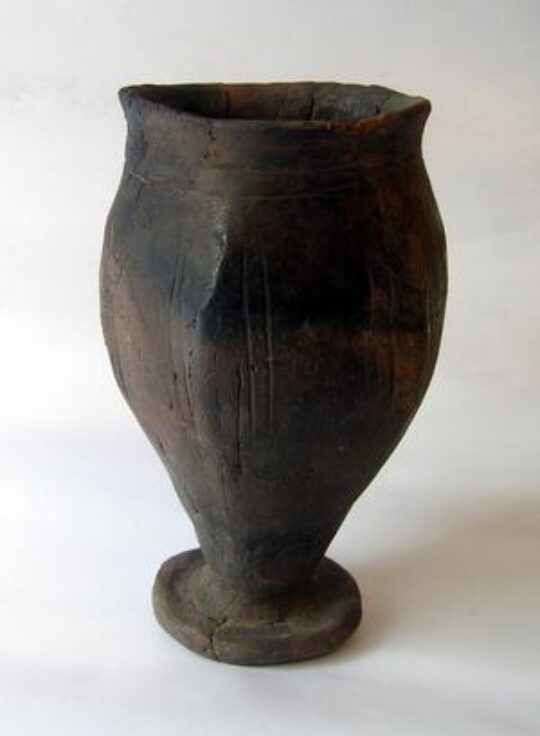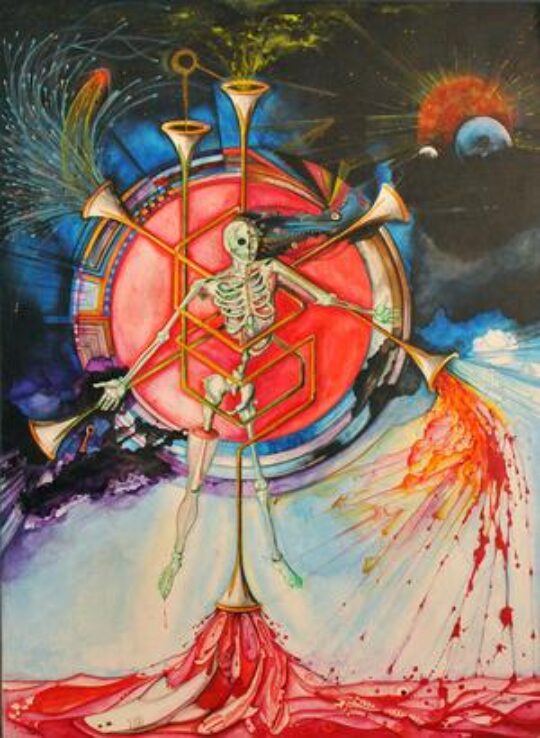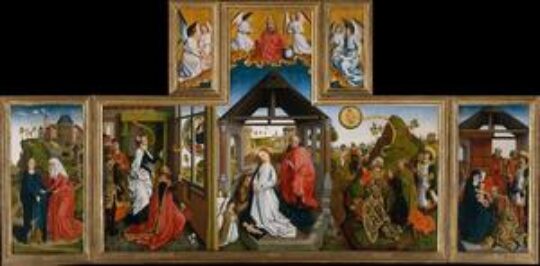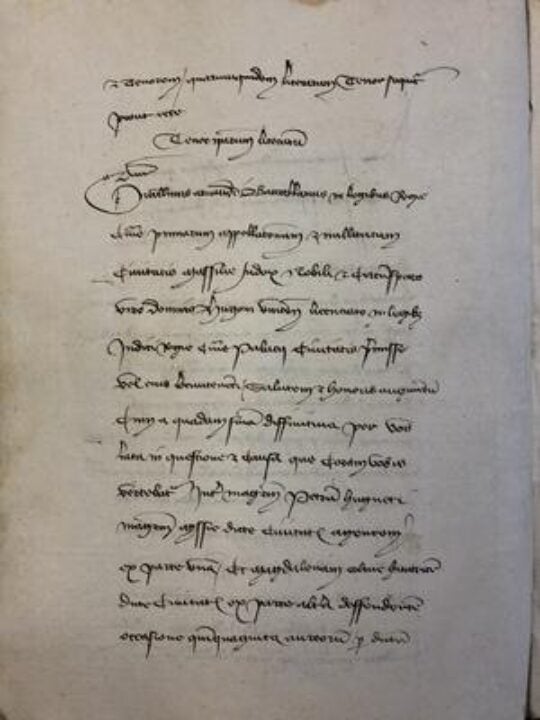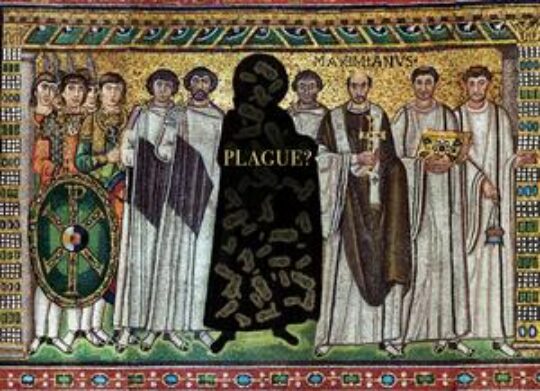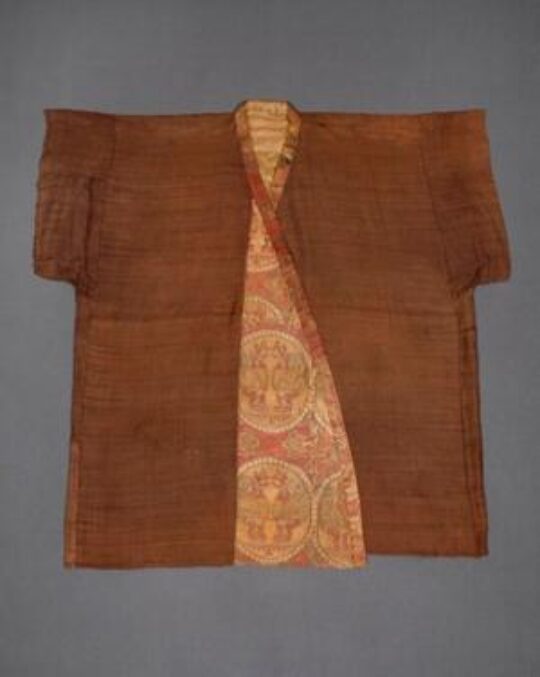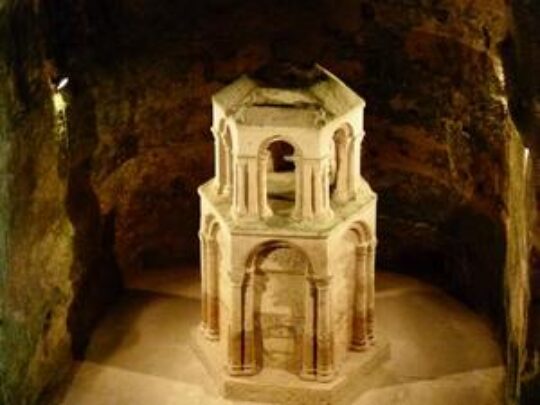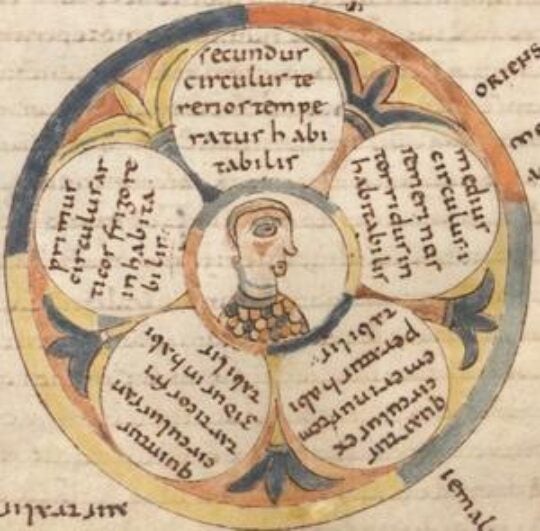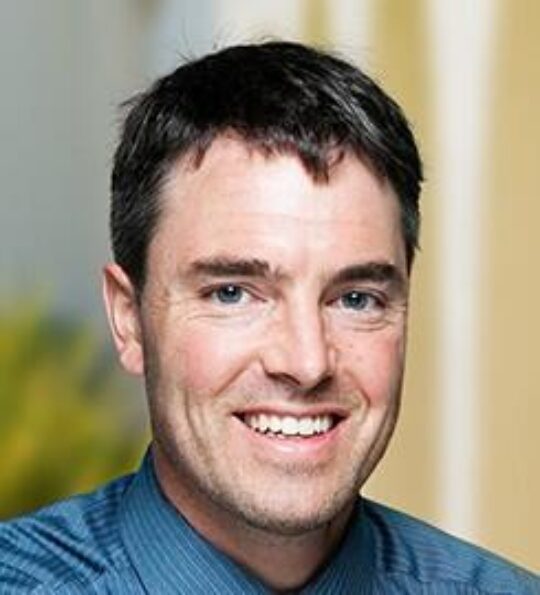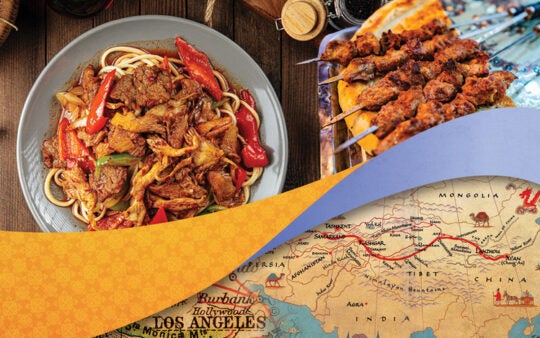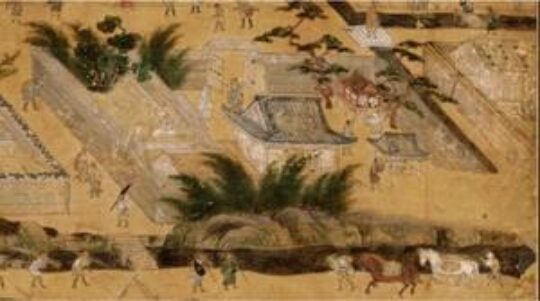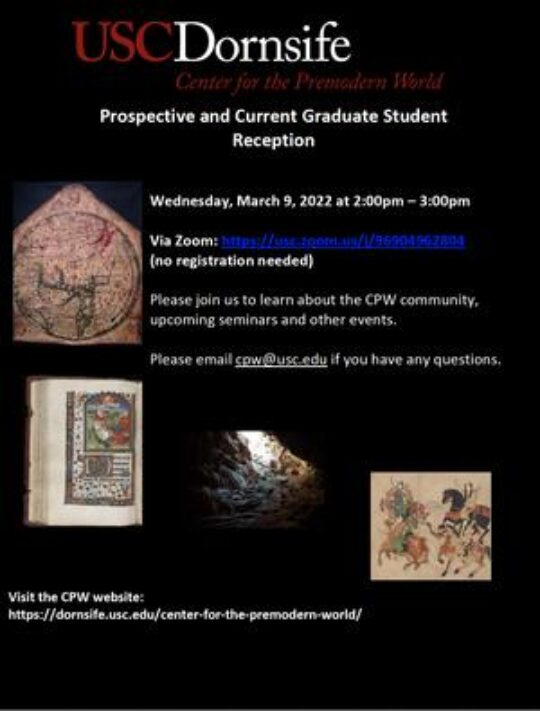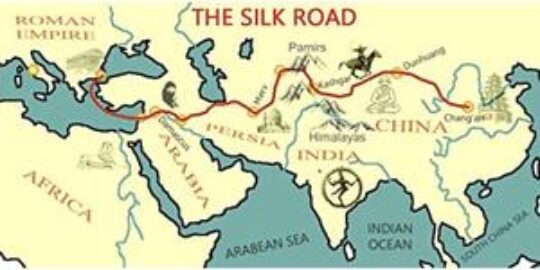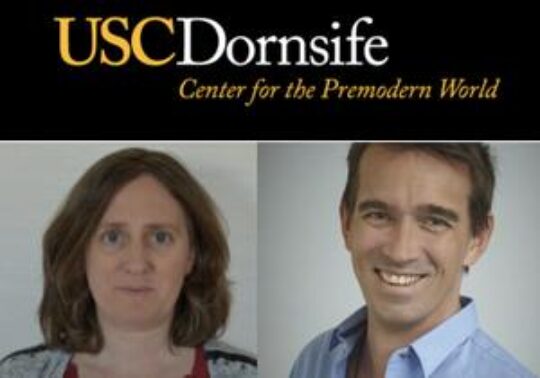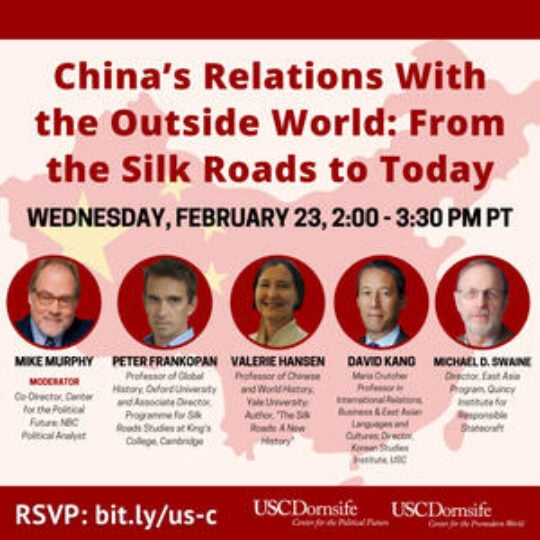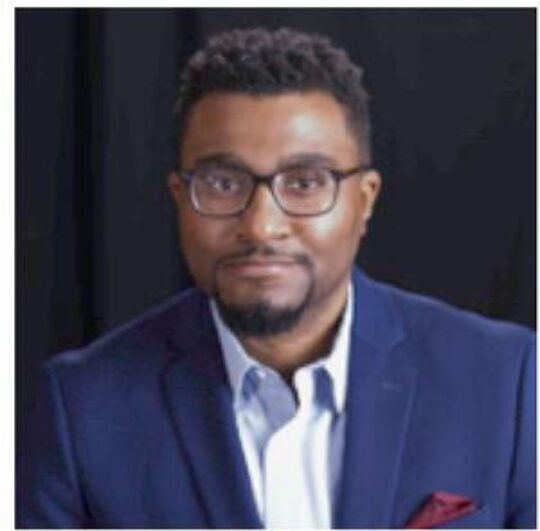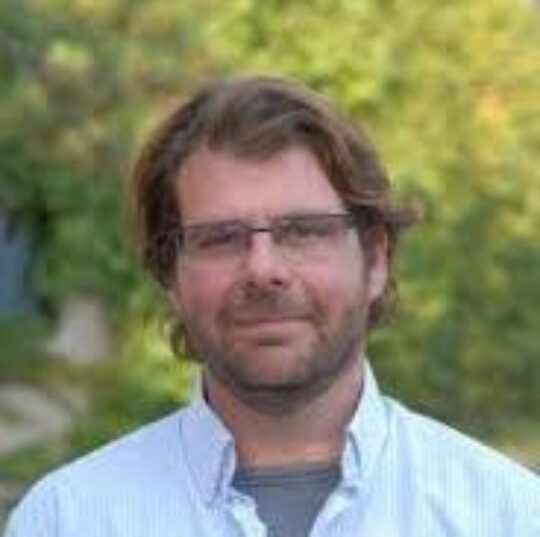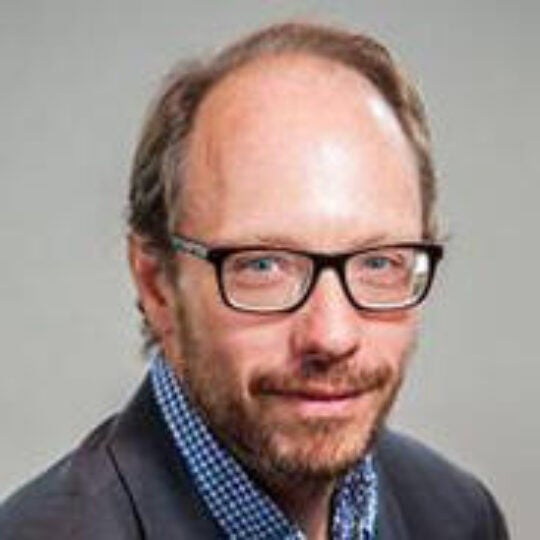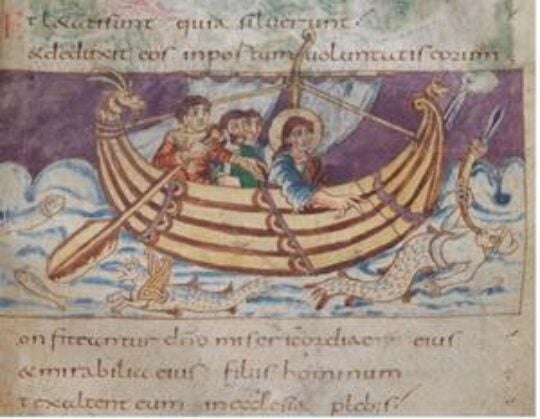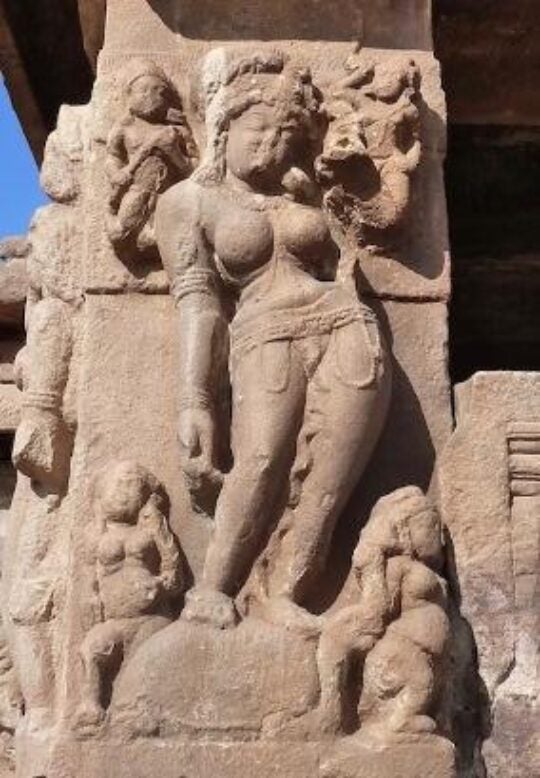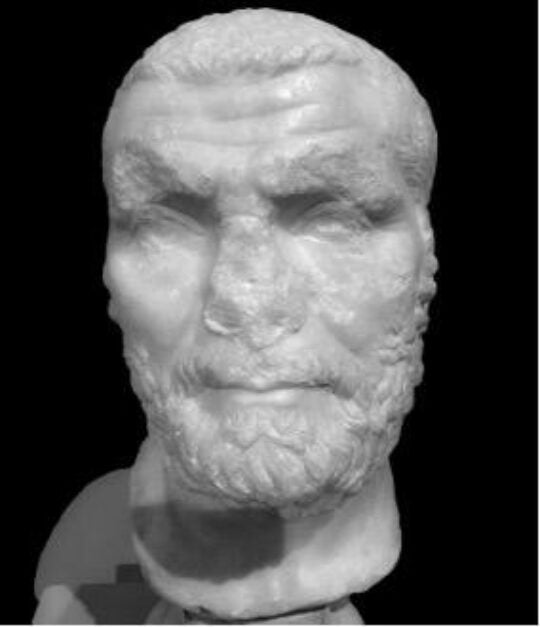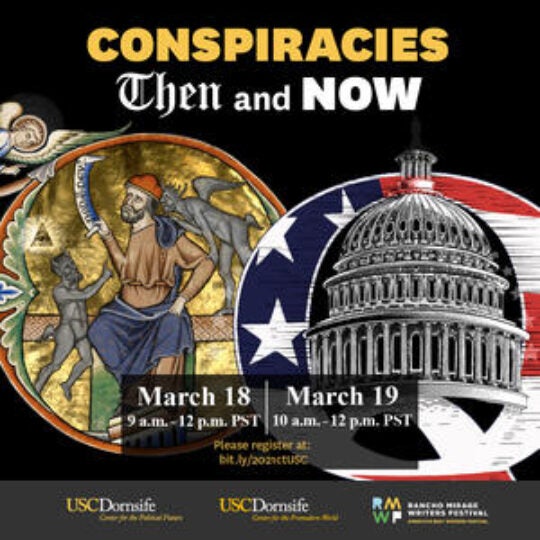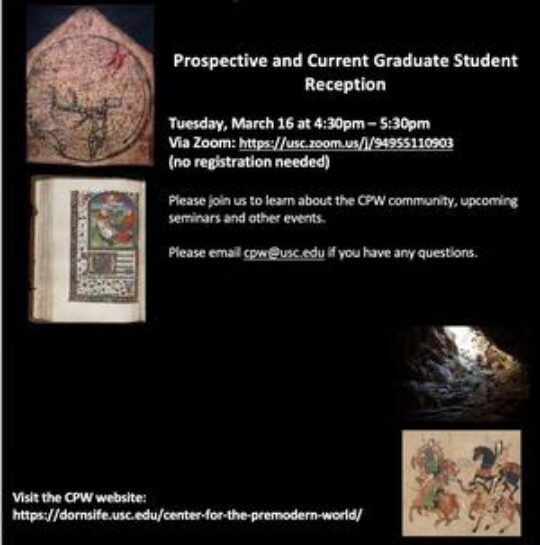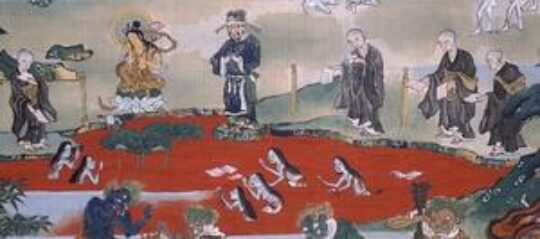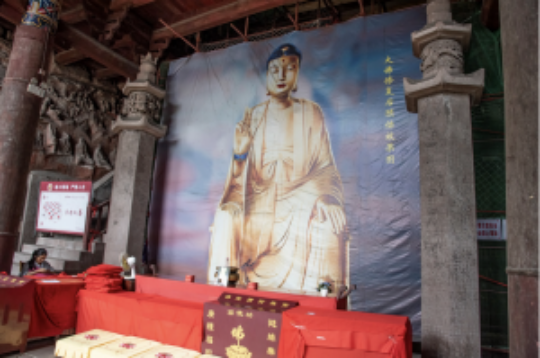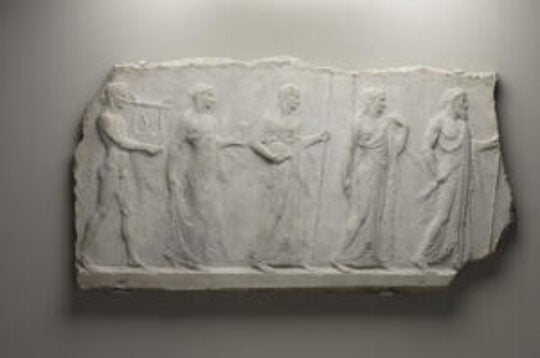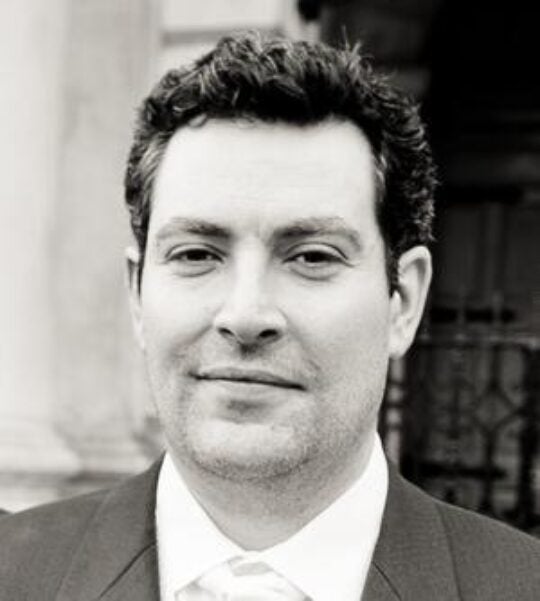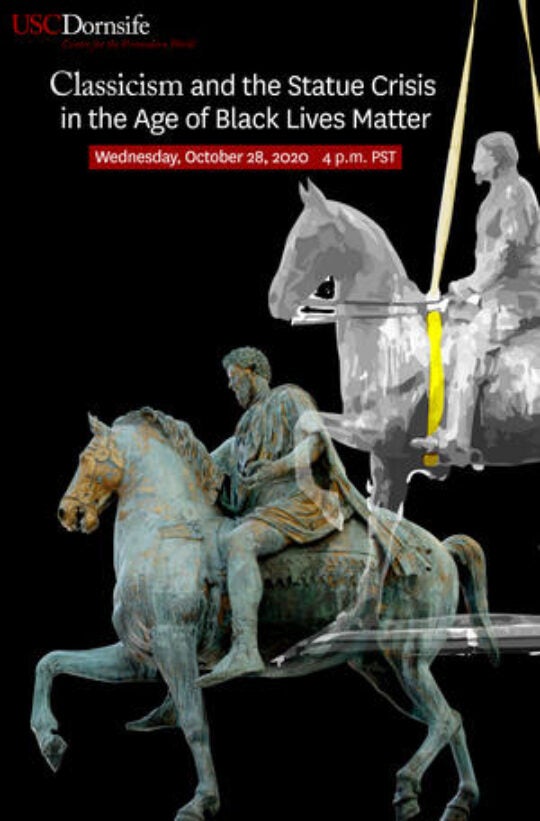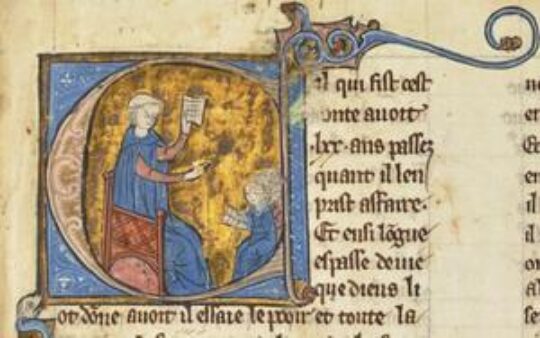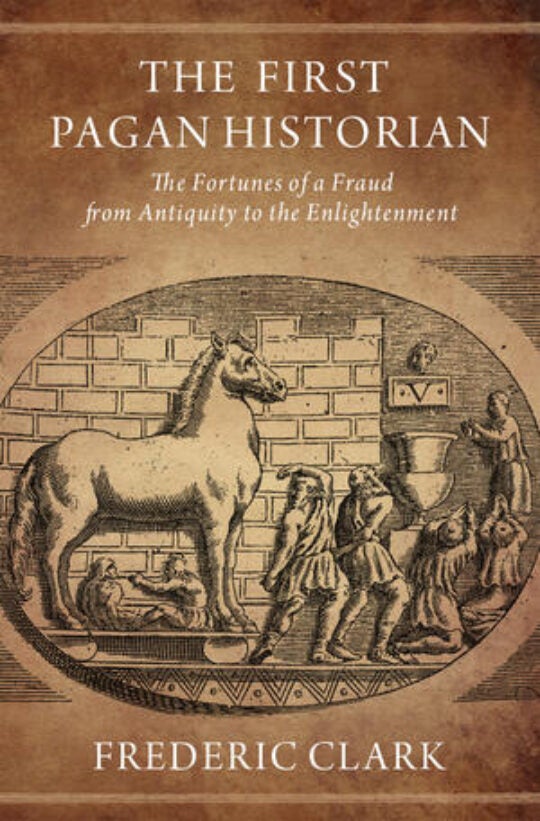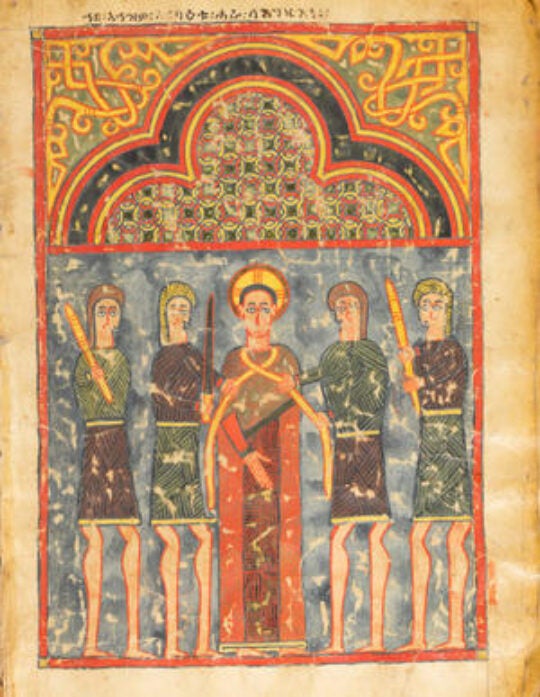Upcoming Events
Kristina Sessa, Department of History, The Ohio State University)
Tuesday April 16, 2024
Glorya Kaufman International Dance Center (KDC) 235
As in other times and places, the people of the late Roman Empire (ca. 250-700 CE) experienced their share of sudden, violent, and destructive environmental disasters – phenomena such as earthquakes, tsunamis, epidemics, and volcanic eruptions – alongside longer-term climatic shifts that in some areas generated deleterious weather conditions, leading to periods of flooding and/or drought. And while the Romans were no strangers to warfare, inhabitants of the late Empire arguably experienced the catastrophic impacts of organized military action on a scale unknown to many previous generations. Many scholars use these and similar observations to fashion declinist narratives about Late Antiquity, which present a range of disasters (e.g., warfare, climate change, disease) as the “causes” of the empire’s collapse. This presentation offers a wholly different set of interpretations of Late Antiquity’s numerous natural and anthropogenic disasters. Rather than constructing a single grand narrative that explains what disasters “did” to the late Roman Empire, I present readings that center the perspectives of the late Romans who experienced them along with the many different environmental contexts in which they took place. Drawing on a range of evidence (textual, archaeological, and natural proxy data), my talk will present some provisional answers the following questions: What did disasters mean to late Romans, and how did they typically talk about them? How did large-scale, materially destructive events differentially impact communities? And perhaps most importantly: did they, and thus should we, distinguish between extraordinary late ancient disasters and those that were more everyday?
Info for Image: Miniature by Piéart dou Tielt in Gilles li Muisis, Antiquitates Flandriae: depiction of the plague at Tournai in 1349
Past Events
The shadow of the ‘people’ (Italy, mid-14th c.)
Igor Mineo (University of Palermo)
Thursday March 7, 2024 at 5:00 p.m
During the late Middle Ages in Italy and Europe, the term “people” (populus / popolo) was of great importance in the political and social lexicon, a fundamental word in both the common and the learned language, and had been for a long time. In Italy in particular, certain political events in the first half of the 14th century demonstrate not only the richness of polysemy (which we have to take for granted in such a case), but also the uncertainties and fluctuations in the practical use of words such as this, and of all those (synonyms, but not only) that are connected to them, in specific contexts. Which contexts and cases are being referred to? ‘People’ in Italian cities during this period, specifically in the north-central part of the peninsula known as the ‘regnum italicum’, often referred to an organized party, an association, and even an institution capable of seizing power. This fact, which greatly impressed contemporaries and later historians, coexisted with other representations and functions of ‘people’ in the same cities and practices. How does this complex constellation operate? How are the boundaries between ‘people’ and ‘non-people’ defined and understood? I will focus on two fundamental cities, Rome and Florence, and exploit the views of Marsilio da Padova and Bartolo da Sassoferrato, particularly perceptive observers of their time.
E. Igor Mineo is a professor of medieval history at the University of Palermo. He is the editor of the journal “Storica” (Viella editore) and serves on the editorial boards of ‘Storia del pensiero politico’ and ‘Critica Marxista’. His main areas of interest are the social and institutional history of the late Middle Ages, especially aristocracy and social stratification, and ideologies and political languages from the late Middle Ages to the early modern period. His works on this subject include: State, orders, and social distinction, in A. Gamberini – I. Lazzarini (ed.), The Italian Renaissance State, Cambridge University Press, Cambridge, 2012, pp. 323-344; Le jeu du peuple avec le temps en Italie au milieu du XIVe siècle, in C. Moatti, M. Riot-Sarcey (ed.), Pourquoi se référer au passé ?, Editions de l’Atelier, Paris 2018, pp. 39-58 ; Le parti e il tutto. La memoria dei Ciompi e la semantica del popolo, in Al di là del Repubblicanesimo. Modernità politica e origini dello Stato, a cura di G. G. Cappelli, con la collaborazione di G.De Vita, Napoli, Unior Press 2020, pp. 107-130.
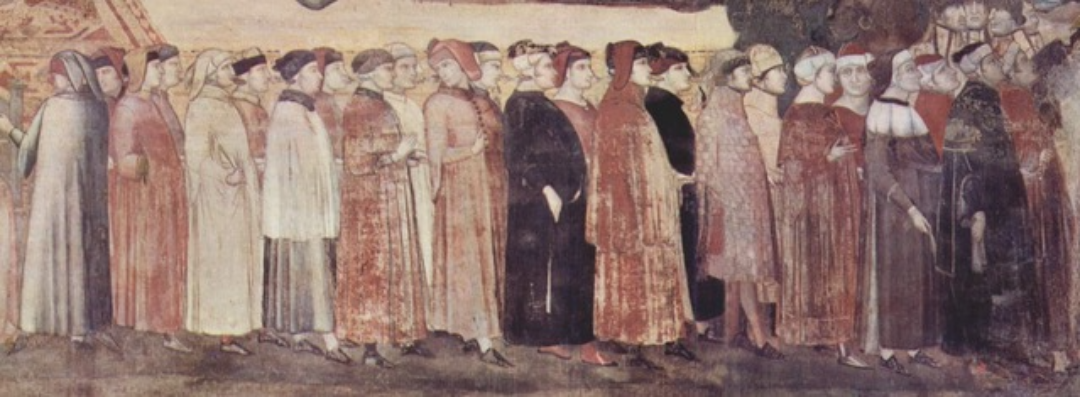
“There Will Be Blood”
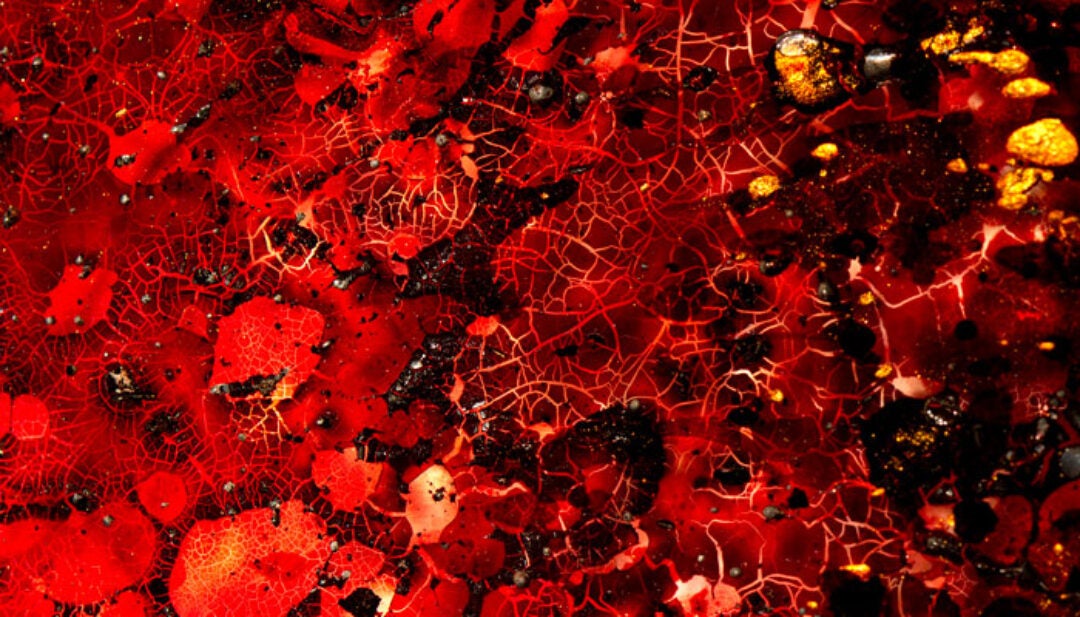
Thinking with Ecophysiology: Exploring New Approaches to Classical Landscapes and Ancient Plants
Kate Birney (Wesleyan University)
Wednesday February 21, 12:30pm-2pm – THH 309K
The idea that plants respond and adapt to different environmental conditions is as old as Theophrastus, but is taking on special resonance in this era of climate change. Ecophysiology, the study of how plants respond to the environment, illuminates specific mechanisms by which plants can survive challenges posed by biotic and abiotic stressors, whether by modifying their phytochemistry, physiology, or metabolism. Our lab is exploring the ways in which ecophysiological knowledge, and even lab or greenhouse experimentation, may be applied in the study of ancient Mediterranean plants. We present two case studies rooted in archaeology and classical sources, that demonstrate the potential (and the limitations) of this interdisciplinary approach to shed light on botanical commodities, ethnobotanical practices and cultivation histories, as well as their broader implications.
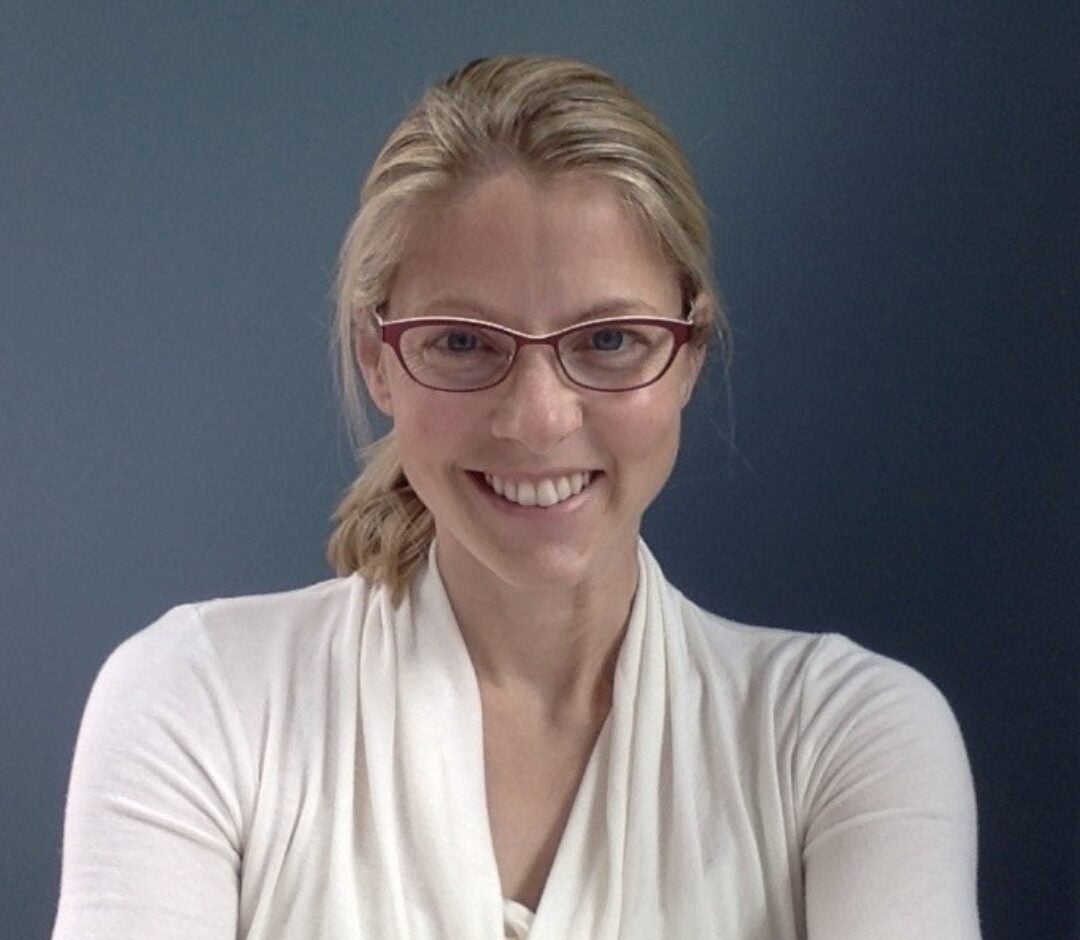
“Beyond a discovery: the Bronzes of San Casciano dei Bagni and their sanctuary”
Wednesday, November 29, 3:30 P.M at TCC 227
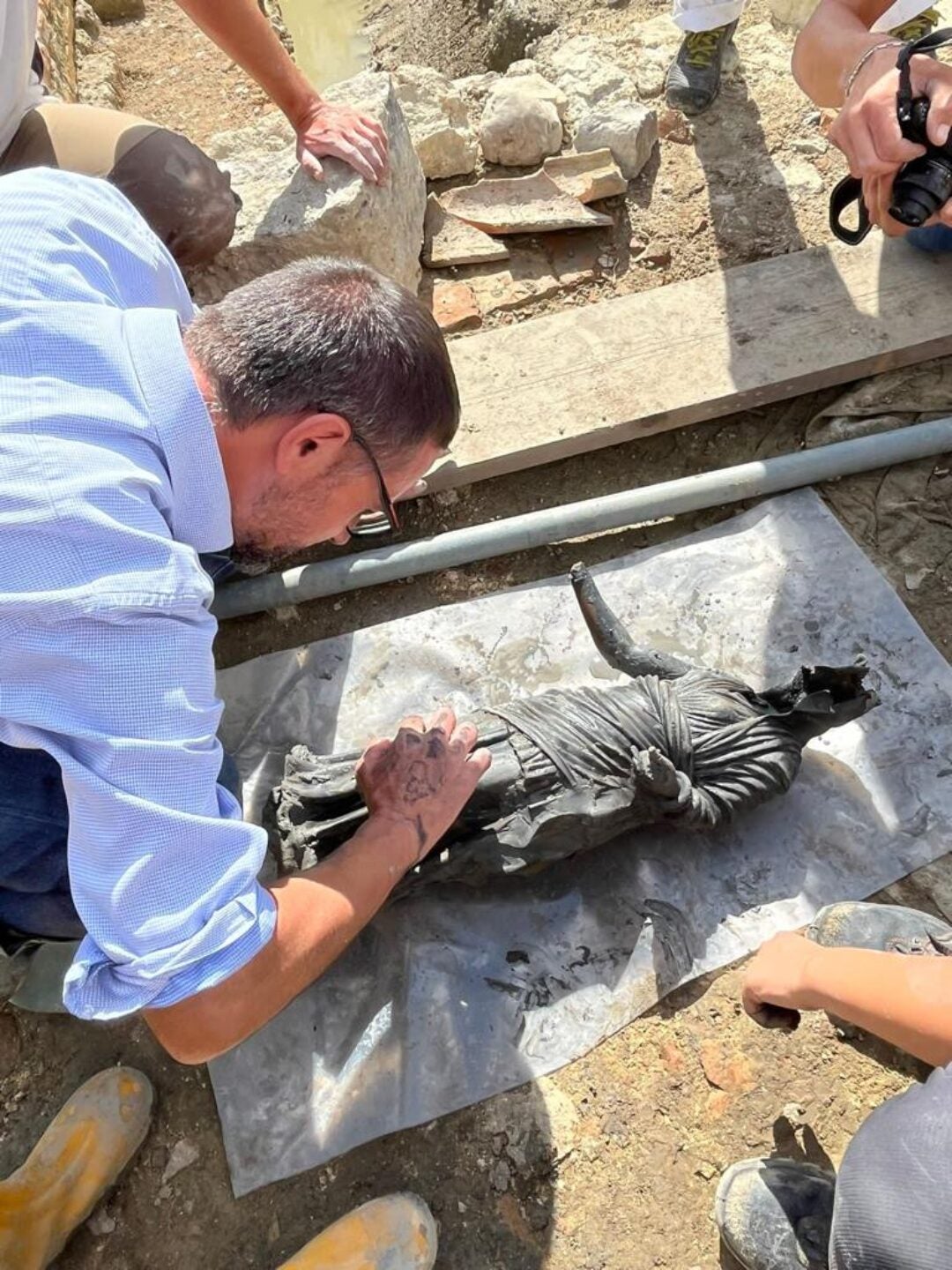
“Praetexit nomine: Aeneid 4 as a Republican tragicomoedia”
Wednesday, October 25th, 3:00 P.M at THH 309K
Giuseppe Pezzini
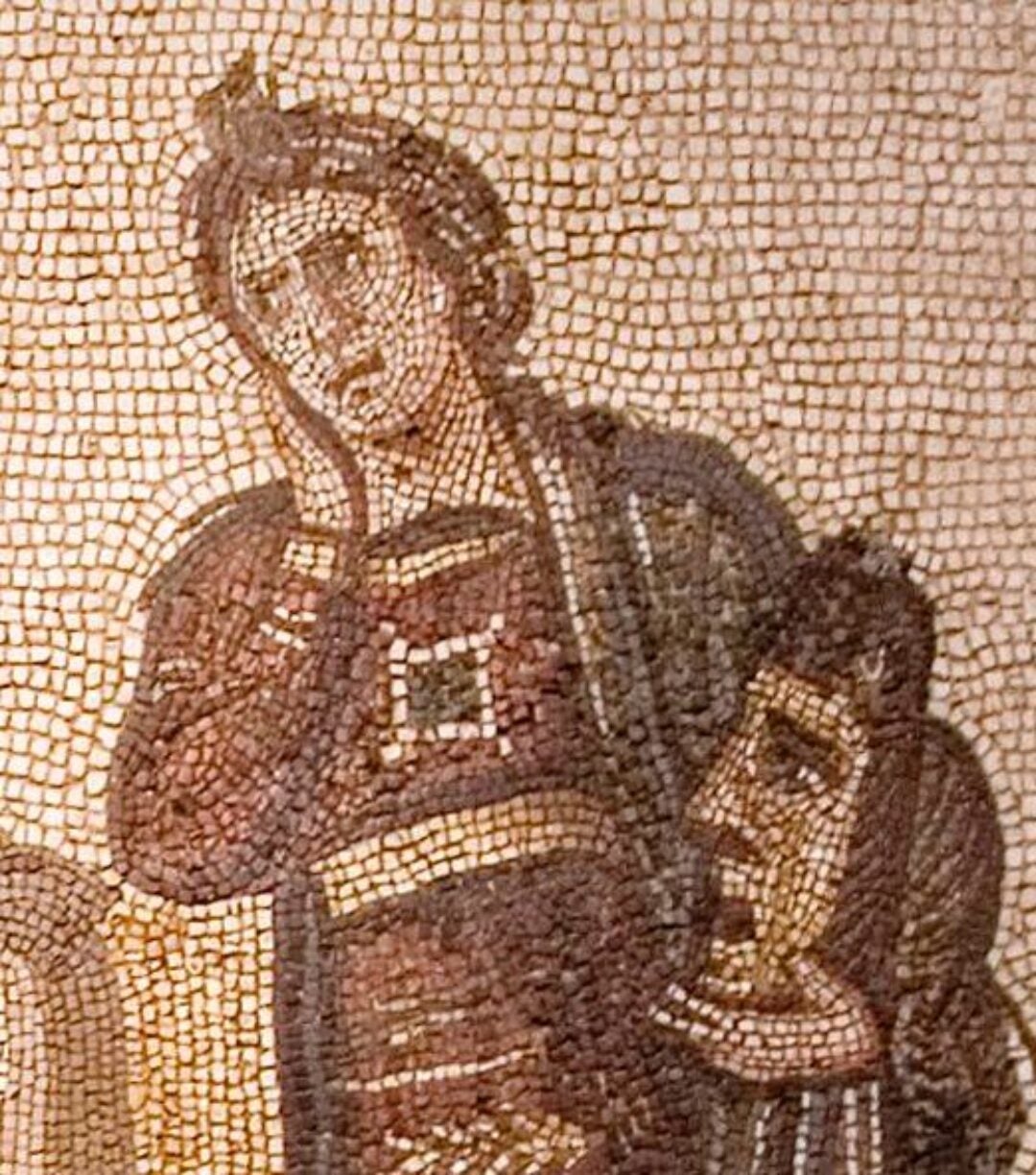
“The Chinese Age of Exploration”
Wednesday, April 19, 3:00 P.M at THH 309
Valerie Hansen, Yale History Department, “The Chinese Age of Exploration”
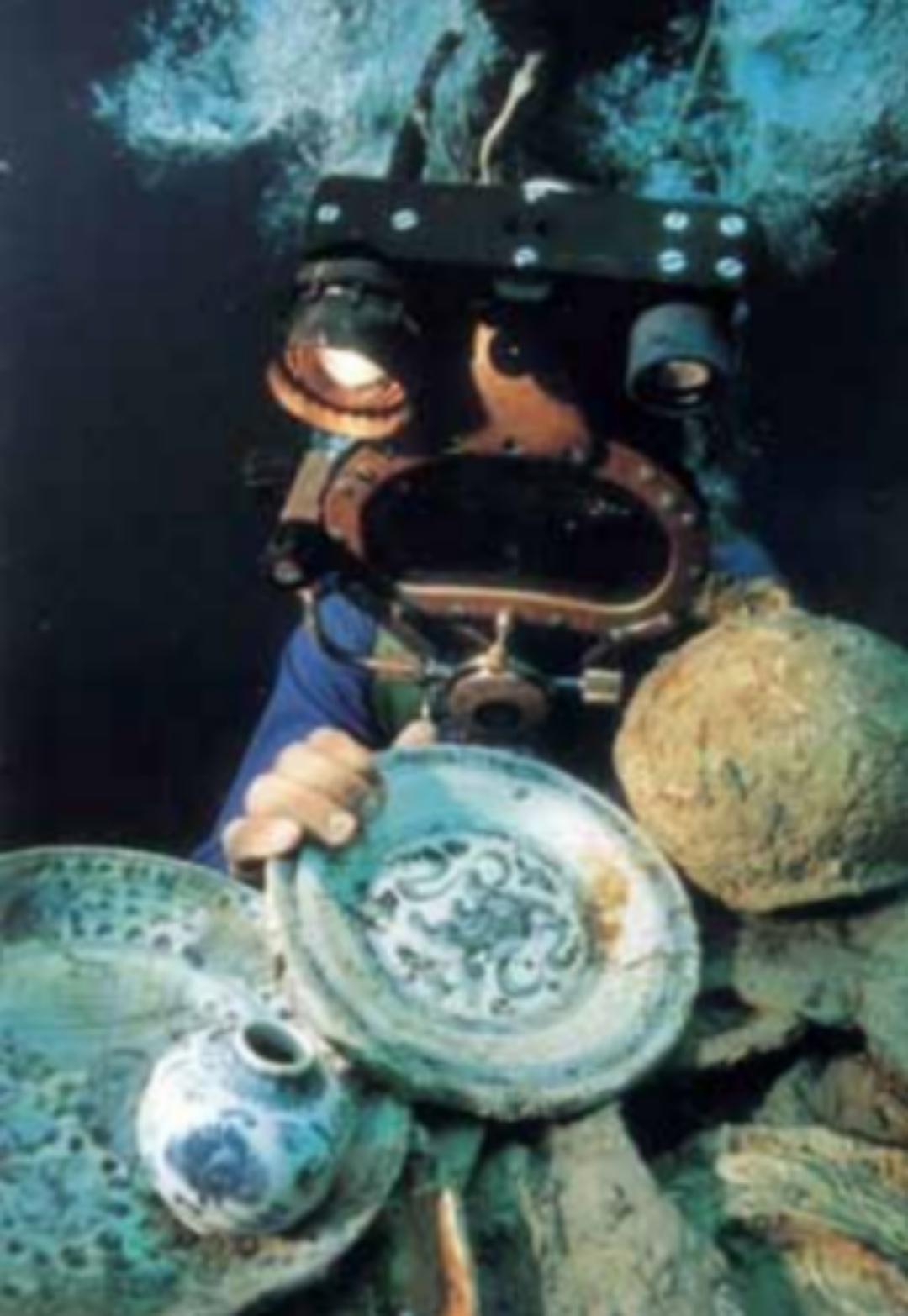
“Looking for Alexandra in the Aeneid”
Wednesday, April 26, 3:30 P.M
Alessandro Barchiesi, Professor of Classics at NYU, “Looking for Alexandra in the Aeneid”
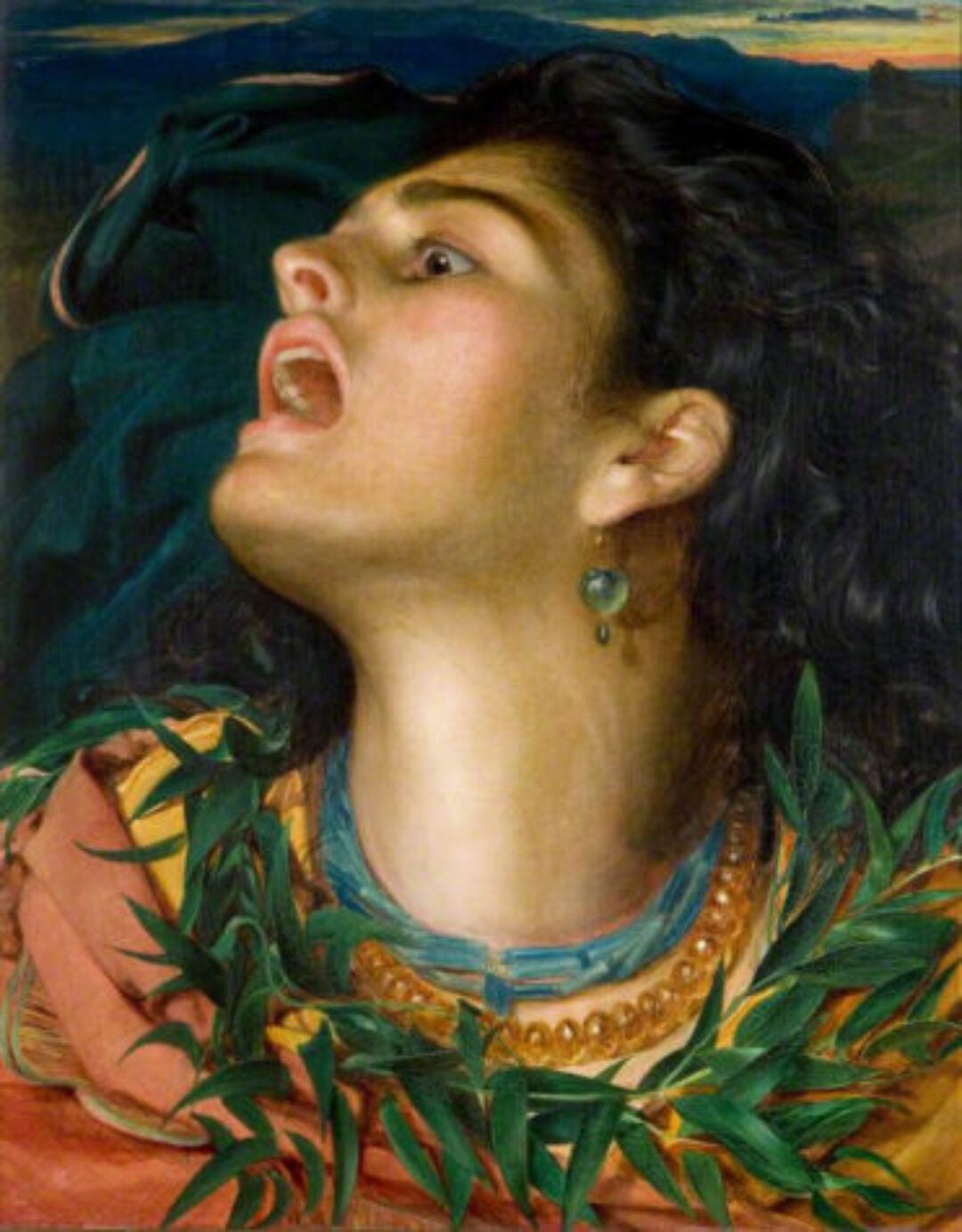
“When Anglo-Saxon Pots Aren’t Anglo-Saxon Pots and Why Historians Should Care”
Wednesday, March 22, 3:15 P.M at SOS 250
Robin Fleming, Boston College History Department, “When Anglo-Saxon Pots Aren’t Anglo-Saxon Pots and Why Historians Should Care”
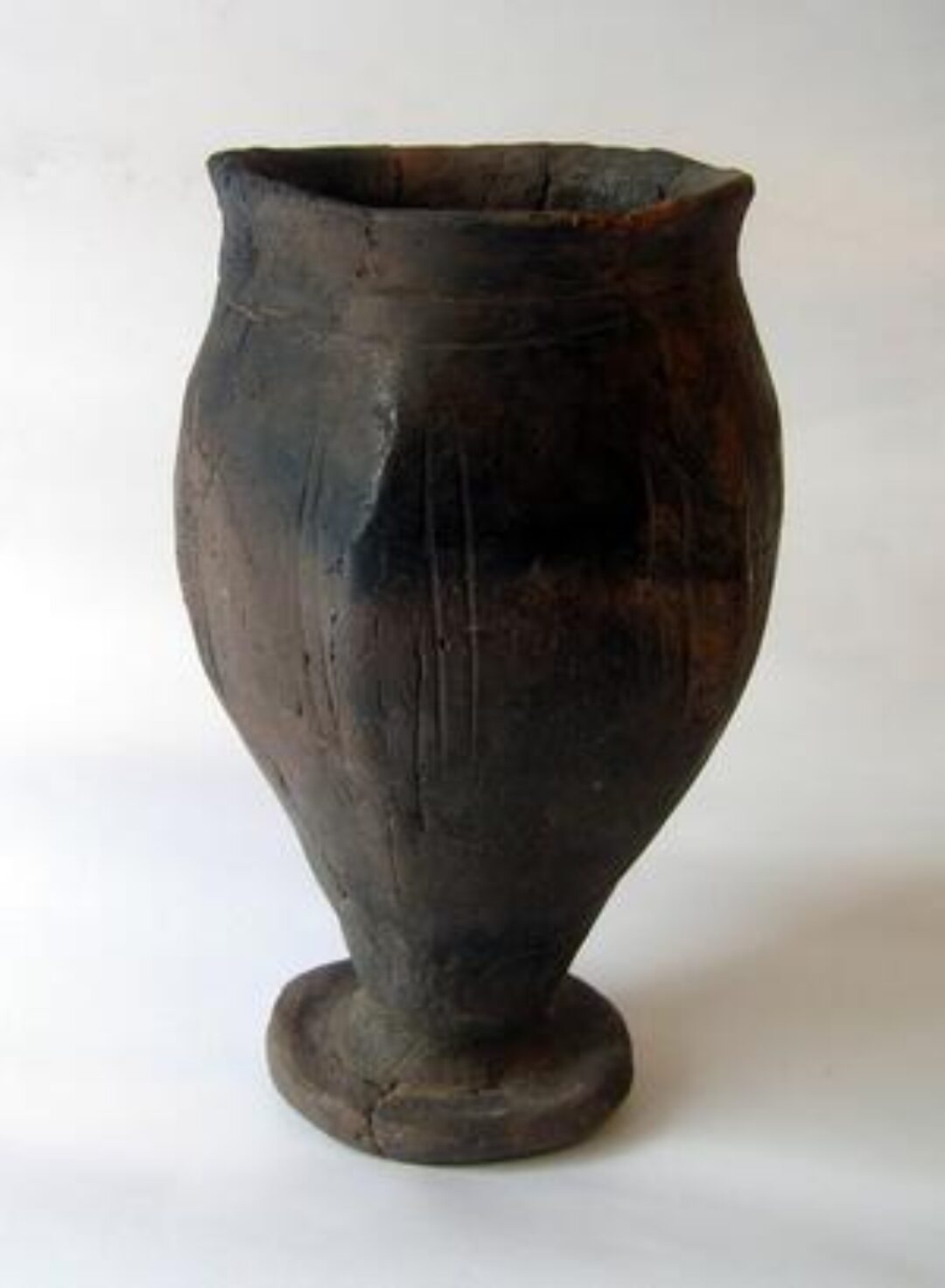
“Music in the Apocalyptic Mode”
3:00pm
Mark Taper Hall (THH) 309
Speakers: Colin McAllister, University of Colorado, Colorado Springs
Revelation, Apocalypse, the End Times—ideas that embody humanity’s deepest hopes and darkest terrors—have also provided inspiration around which musicians, poets, and composers have crafted some of their most profound creations. Colin McAllister, himself a renowned
guitarist as well as a music historian, will take the CPW community on an intellectual and auditory tour of the ways in which apocalyptic thought and musical expression have interacted over the centuries, from medieval poetic meditations on God’s Judgment to Heavy Metal visions of post-apocalyptic hellscapes, and in the process cast light
one of our most widely shared if little understood cultural
touchstones.
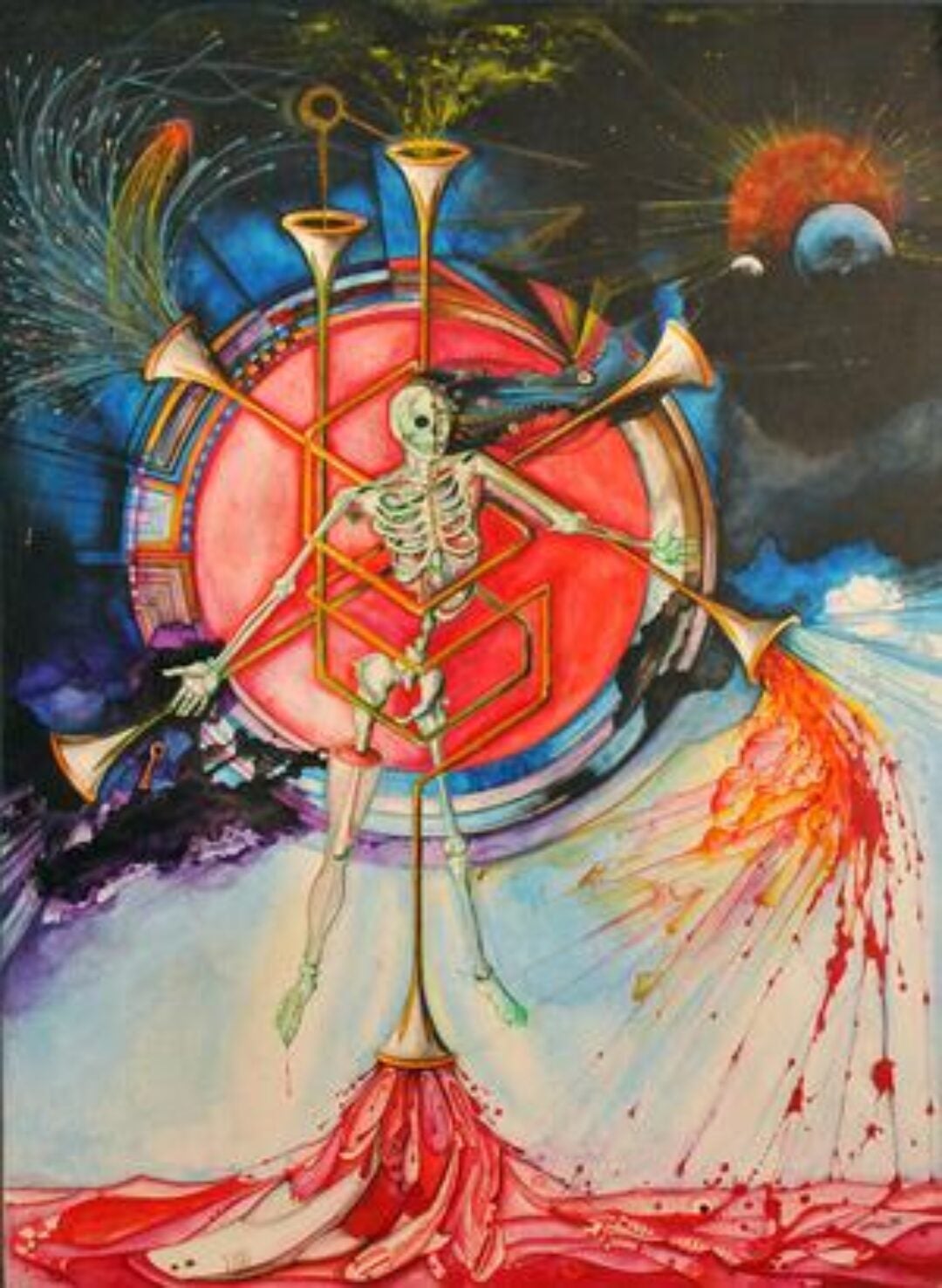
Star-Gazers from the Mount of Victory: The Magi and Astrology in the Later Middle Ages
3:00pm
Mark Taper Hall (THH) 309
Speakers: Laura Ackerman Smoller, University of Rochester
The gospel story of the Magi (Matthew 2:1-12) was a source of trouble for medieval Christian readers. Who were the Magi and what was the source of their knowledge? Were they, as some opined, descendants of the prophet Balaam, watching atop the Mount of Victory for the mysterious star that he had predicted would arise out of Jacob (Numbers 24:19)? Or were these wise men in fact astrologers? Although the church fathers had advocated against astrology, a wave of translations from the Arabic in the twelfth century brought western Europeans into contact with astrological theories according to which the stars were capable of demonstrating Christian truths. This talk will examine how preachers talked about the magi and their relationship to astrology. Whether citing a planetary conjunction or comet, linking the Magi to Old Testament prophecy, or simply turning a blind eye to their star gazing, medieval preachers were contributing to an ongoing conversation about astrology as it rose in prominence—and came increasingly under suspicion—in the years between 1100 and 1600.
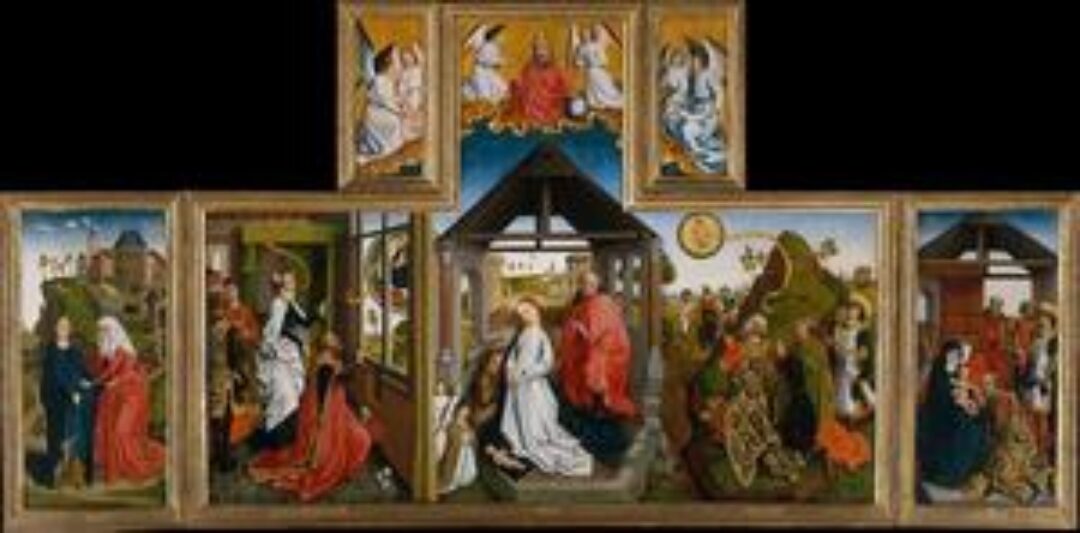
Searching for Magdalena (or, Why a Medieval Historian is Reading Saidiya Hartman and Other Notes from the Archive).
3:00pm
Doheny Library (DML) 240
Speakers: Daniel Smail, Harvard University
Two decades ago, the author, while working in the archives of the city of Marseille, stumbled across a lawsuit from 1406 setting a woman named Magdalena Coline against a shipwright named Peire Huguet. Magdalena was a Berber woman who had been enslaved to Peire for more than a decade and was now suing her former enslaver over a small debt. This paper describes the author’s subsequent efforts to use the fragmentary clues available in the archives to piece together Magdalena’s life history and that of her enslaver. This process invites the question that lies at the heart of this paper: does the moral duty to tell the histories of marginalized peoples authorize the use of imaginative reconstructions of those histories?
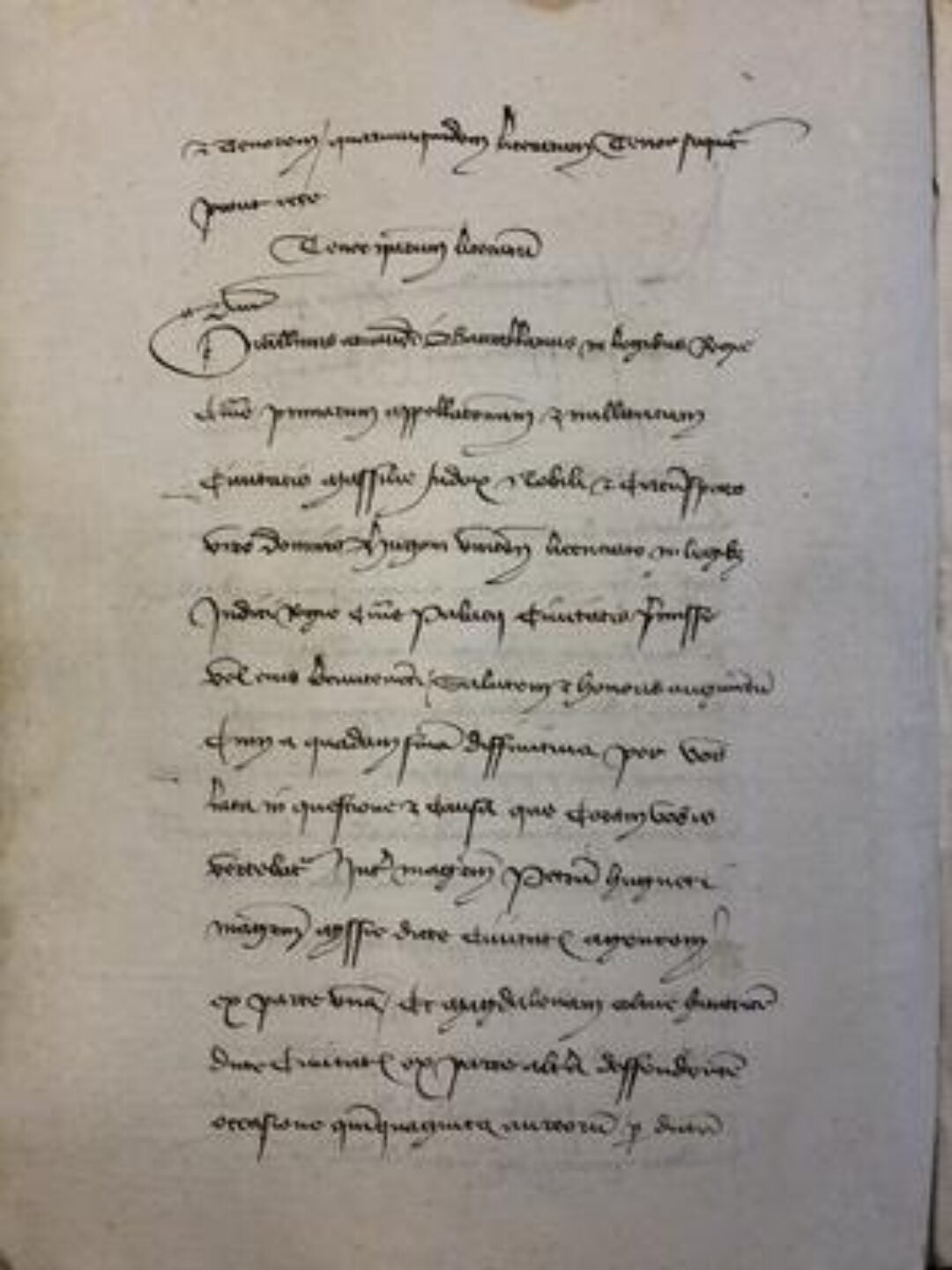
Assessing the Impact of the Justinianic Plague across Time and Space
5:00pm
SOS 250
Speakers: Merle Eisenberg, Oklahoma State University
Assessing the Impact of the Justinianic Plague across Time and Space
The Justinianic Plague (c. 540-751 CE) has become a pivotal dividing event between the ancient and medieval worlds. The pandemic’s significant mortality and various other secondary effects are said to transform the Eurasian world. This talk will investigate the impact of the Justinianic Plague at two levels. First, it will explore the scale of the plague’s impact from an individual, burial archaeology level up to states and empires. Second, the talk will discuss the impact of the plague from the years immediately after its late antique outbreak to how living with Covid has shaped the histories we write about pandemics
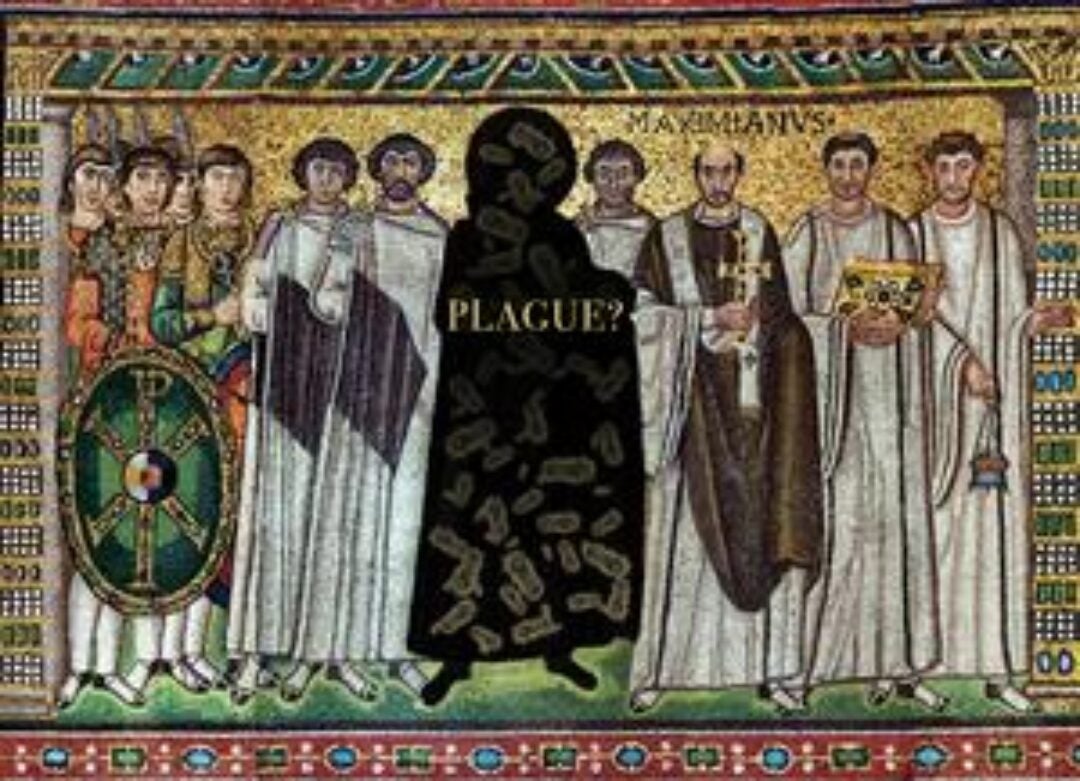
Art beyond the Plateaus: Tibet in the Artistic and Religious Exchanges across the Himalayas, Central Asia, and China
4:00pm to 6:00pm
SOS B40
Speakers:
Mariachiara Gasparini, University of Oregon
David Pritzker, Pritzker Art Collaborative
Discussant:
Yoonah Hwang, University of Southern California
This workshop aims to reevaluate the role of the Tibetan Empire (also known as Tubo) in the transmission of visual and religious cultures across the Himalayas, Central Asia, and China. Focusing on art as a vehicle of cultural exchange, the speakers will examine a range of artistic media such as painting, metalwork, and textile that developed with great sophistication and prevalence between the 7th and 10th centuries, while considering how specific religious concepts and practices were represented and disseminated through material culture across multiple regions. The workshop will also explore both human (political, military, social, economic) and non-human (climatic and the environmental) factors in the development of artistic materials and production methods that took place amid the power struggles between the Tibetans, Iranians, Turks, Arabs, and the Chinese in Medieval Asia.
This workshop is part of the Art, Religion, History Collaborative Group sponsored by the USC Office of Research Initiatives and Facilities. It is co-organized by the Department of Art History and East Asian Studies Center in the Dornsife College of Letters, Arts, and Sciences.
Image:
Silk Shirt with Senmurws. 670-900 CE. Possibly Tubo.
Courtesy of Carlo Cristi––Asian Arts Company
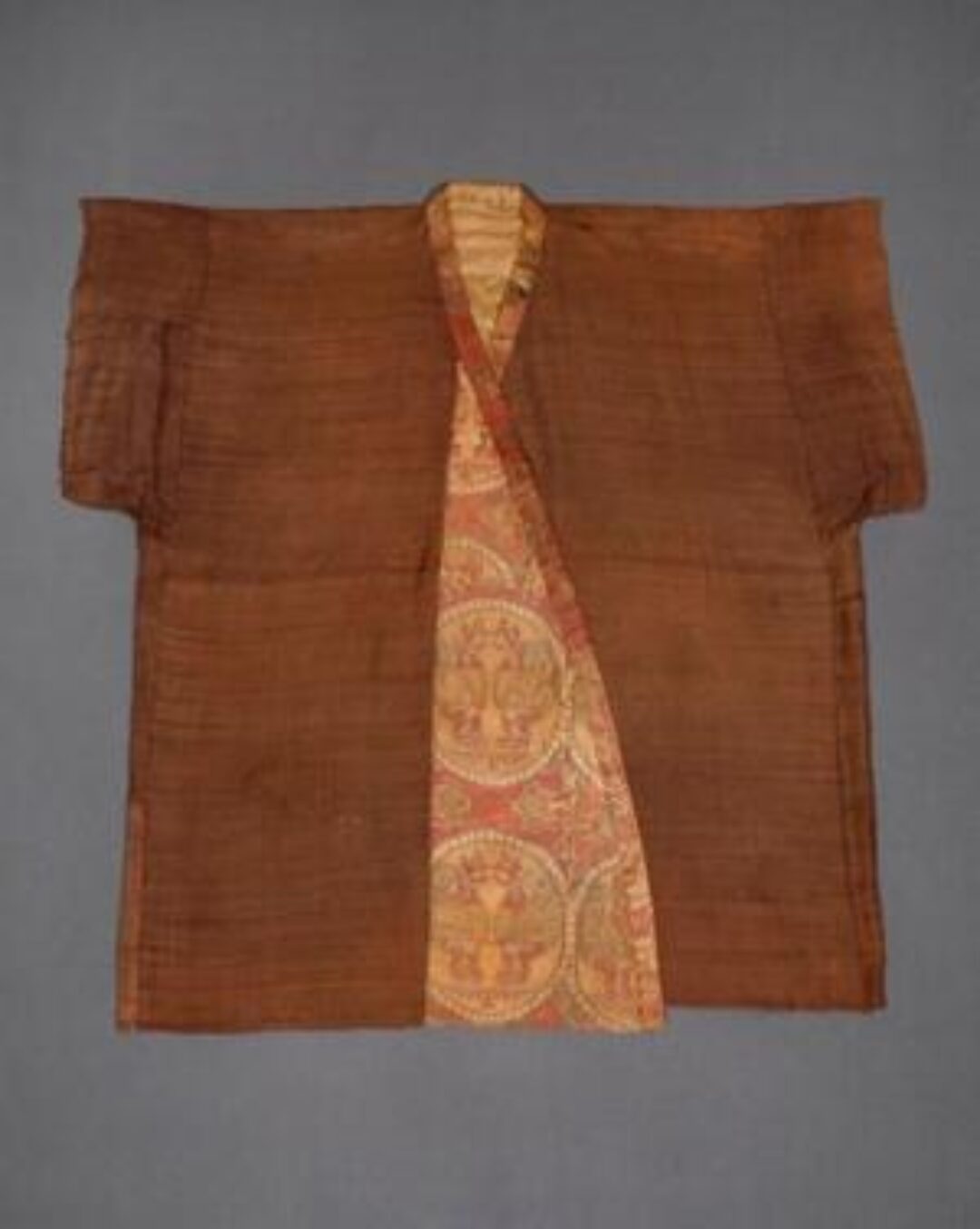
Friday, October 28
10:00am to 5:30pm
In-person: ACB 238
- Lisa Bitel “Stuck in the Iron Age: The Buried Otherworld of Early Ireland”
Respondent: Jennifer Jahner
- Jay Rubenstein “Raiders of the Lost Patriarchs.”
Respondent: Alison Perchuck
- Carolyn Laferriere Paper: “Making a Case for Caves: The Cult of Pan in Athens.”
Respondent: Ann Marie Yasin
- Dyan Elliott “Grave Events: Exhumation in the Early Middle Ages.”
Respondent: David Albertson
- Jennifer Hughes “Paying Tribute for the Dead: Religion and Spectral Labor in Sixteenth-Century Mexican Epidemics”
Respondent: Marie Kelleher
- Sarah Semple “Early Medieval Conceptions of Sacred Space and Place: Holes, Hollows, Caves and Hellmouths in Early Medieval Practice and Imagination”
Respondent: Maya Maskarinec
Advance Registration is required. Please register at the following link.
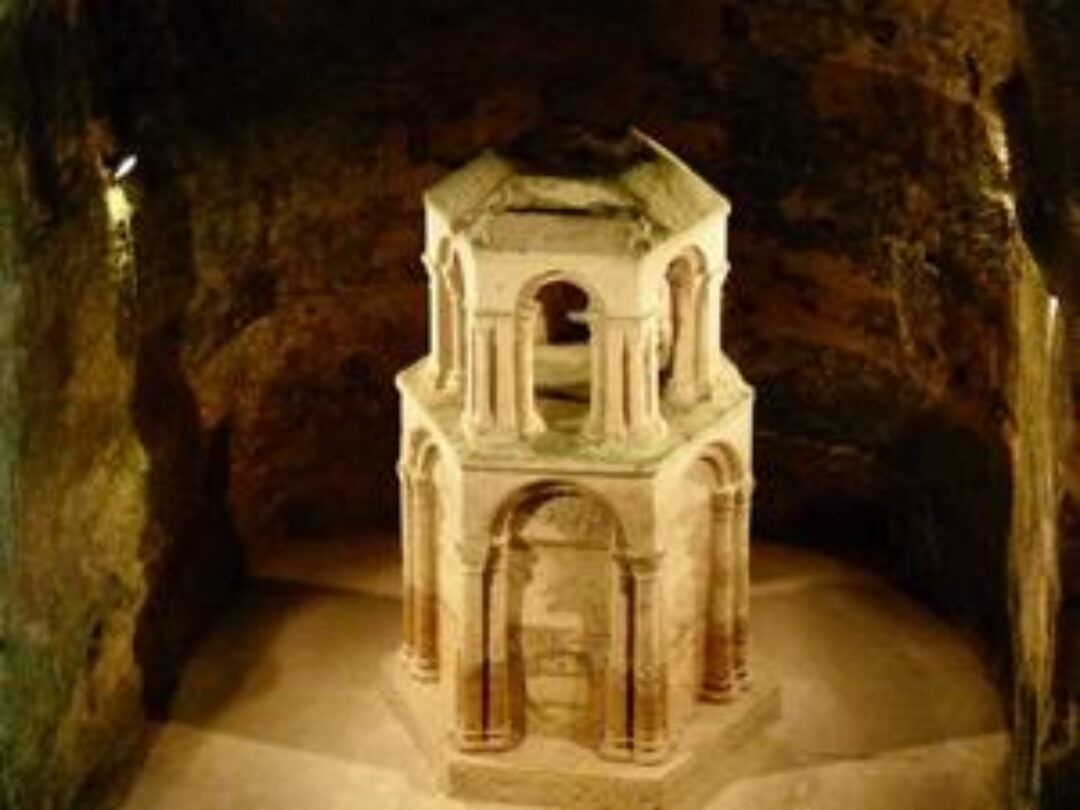
Carolingian Weather Events and the Climatic Longue Dureé.
October 17, 2022 5:00pm
SOS 250
Speaker: David J. Patterson
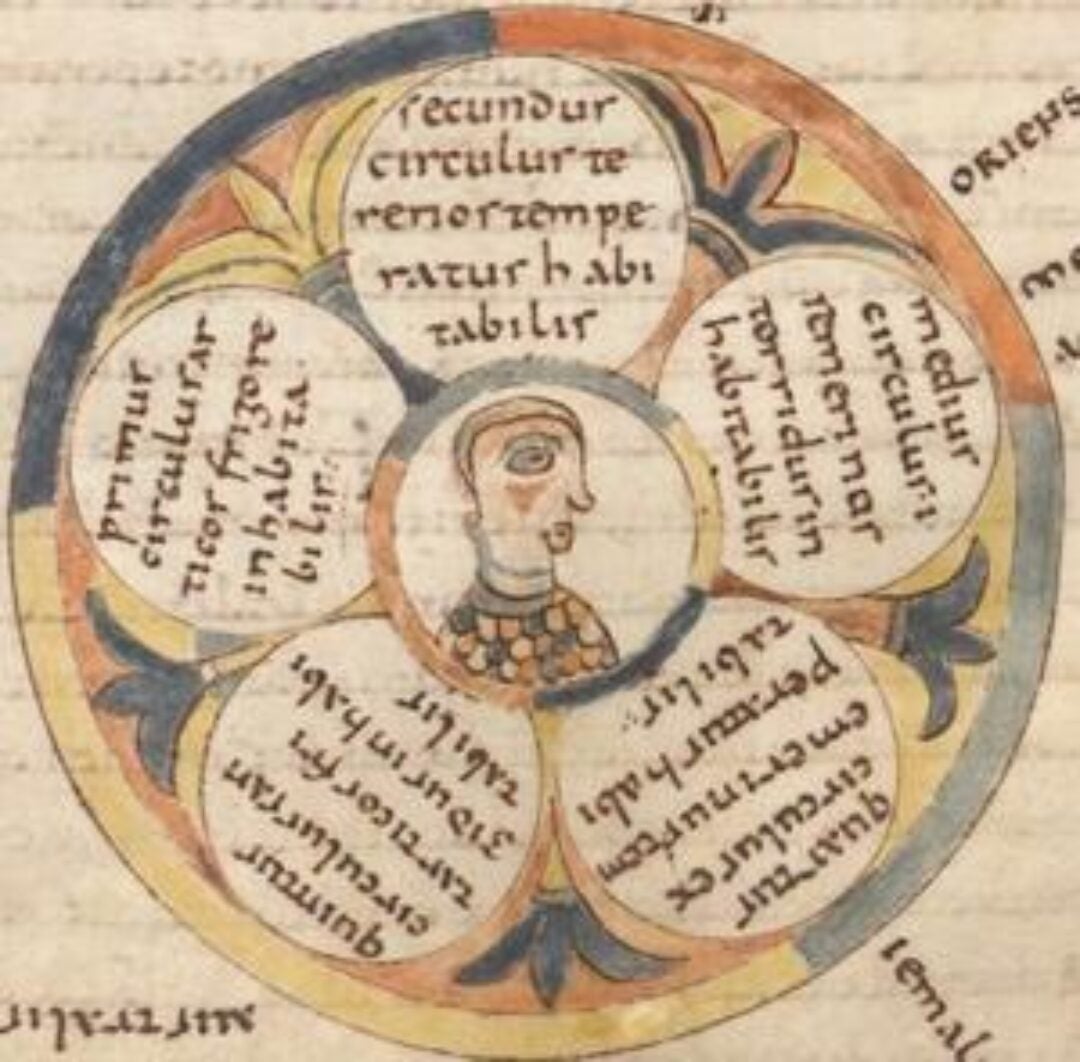
Hiding the Plain Sight: The Vicissitudes of Interfaith-Sex Prosecution in the Medieval Crown of Aragon
Monday, April 18
1:30pm to 3:00pm
in-person: SOS 250
Speaker: Thomas Barton (University of San Diego, History & USD’s Medieval and Renaissance Studies Program)
While ecclesiastical and secular laws throughout the pluralistic medieval Iberian Peninsula universally condemned interfaith sexual relationships, especially those involving Christian women and non-Christian men, scholars have long noticed inconsistencies in their application by royal, seigniorial, and municipal authorities alike. This article explores this phenomenon by reconstructing the socio-political circumstances that could lead authorities to turn a blind eye towards such illicit intimate relationships, on the one hand, and identifying circumstances that could trigger sensitivity among authorities and prompt vigorous prosecutions, on the other.
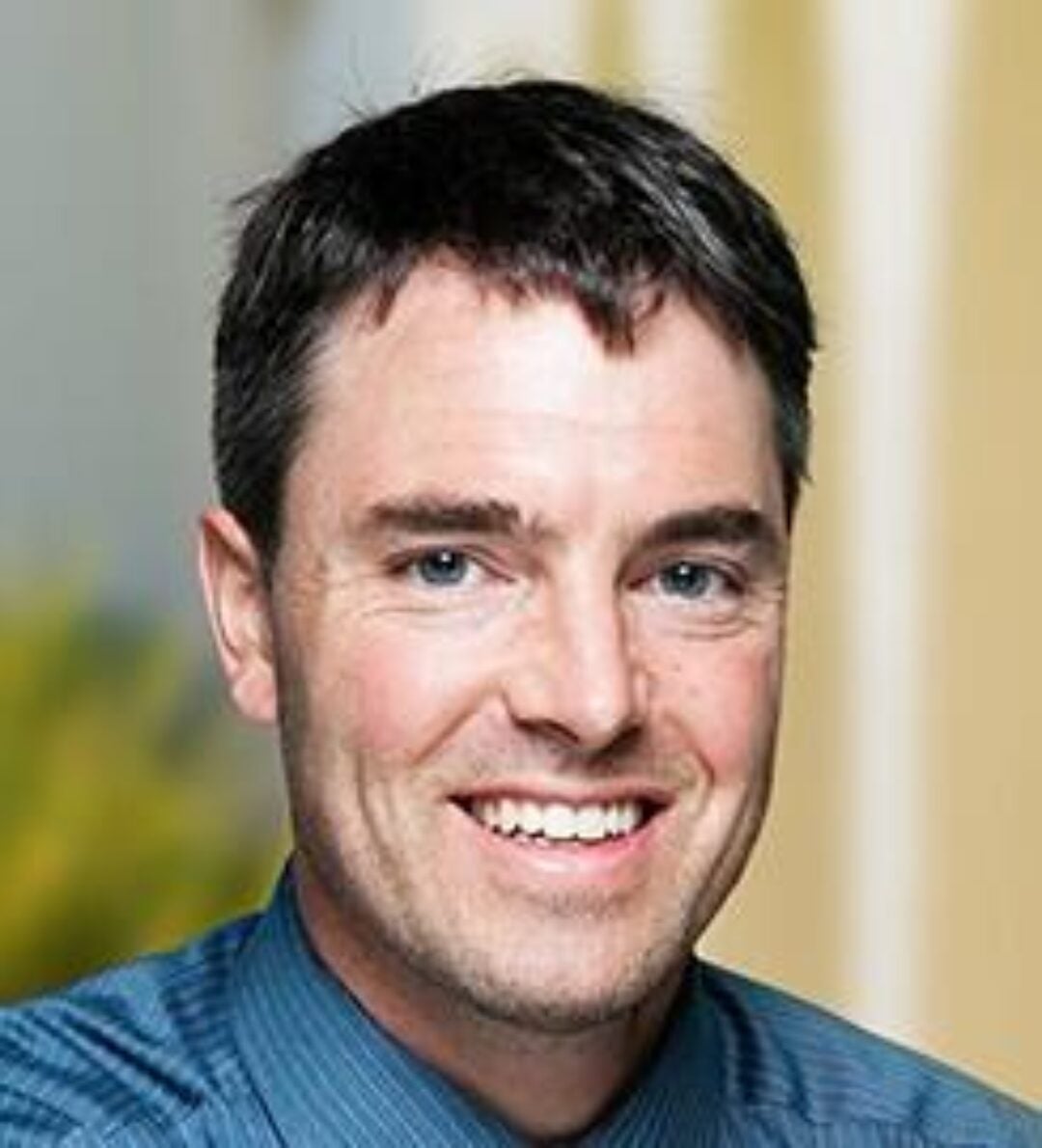
Borrowed Recipes: Migrant Food Worlds of the Silk Roads
Thursday, April 7
2:00pm – 5:00pm PDT
Location: Doheny Memorial Library (DML), Friends of the USC Libraries Lecure Hall, DML 240, and Alumni Park
2–3:15 p.m.: Panel discussion at Friends of the USC Libraries Lecture Hall, DML 240
3:30–5 p.m.: Food tastings and cooking demos at Alumni Park
ADMISSION:
Admission is free. Reservations required. RSVP
Many of the foods we enjoy in Los Angeles arrived via long journeys along the ancient Silk Roads, and are the result of countless exchanges between cultures in East and Central Asia, Persia, Western Asia, North Africa, and the Mediterranean. Join us for a conversation about these often hidden—and delicious—culinary histories moderated by science writer Nicola Twilley of the podcast Gastropod, chef Bughra Arkin of Dolan’s Uyghur Cuisine, food archaeologist Farrell Monaco of the blog Tavola Mediterranea, food historian Joseph Nagy of Harvard University, and LAist food critic Elina Shatkin.
After the discussion, see—and taste—Silk Road food histories for yourself. Dolan’s Uyghur Cuisine and other L.A.-area restaurants will provide food tastings and live cooking demonstrations of Armenian, Ethiopian, Uyghur, and other culinary favorites from the ancient Silk Roads.
In conjunction with the panel and tastings, the USC Libraries will present an exhibition during Spring 2022 in Doheny Memorial Library tracing the long history of cultural exchanges on the ancient Silk Roads, which were an important forerunner to globalization as we conceive of it today. The exhibition was developed collaboratively by the USC Libraries and faculty from the history and archaeology departments at USC Dornsife.
Presented by USC Visions and Voices: The Arts and Humanities Initiative. Organized by the USC Libraries, USC Center for the Premodern World, USC Archaeology Research Center, and USC East Asian Studies Center at USC Dornsife College.
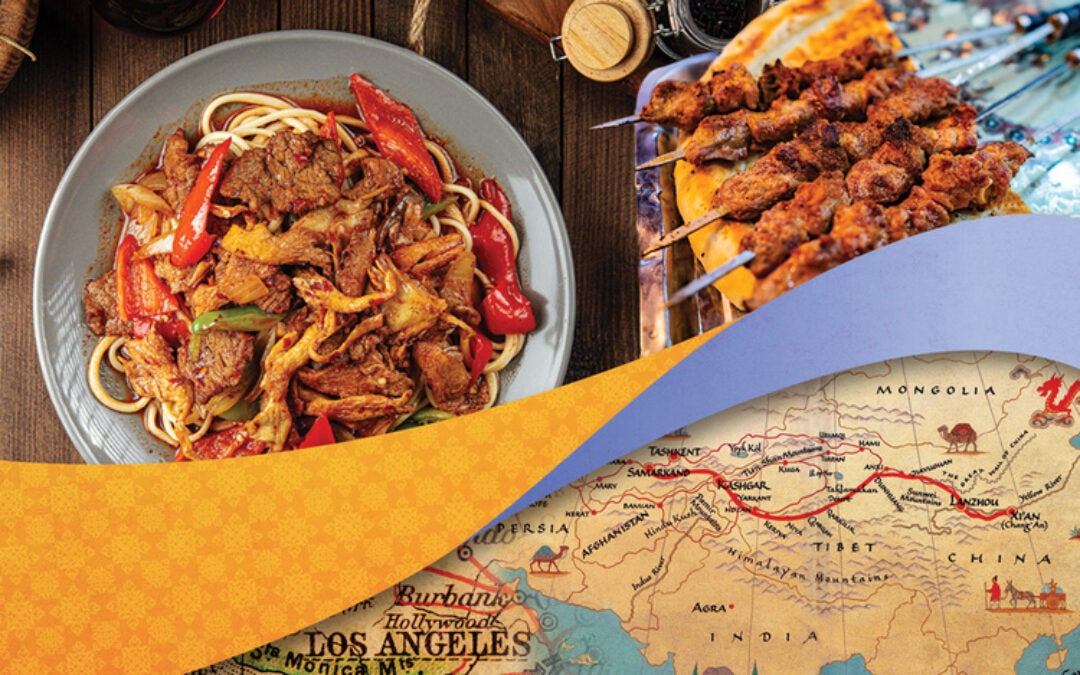
Holy War— War & Religion in Medieval Europe and Japan, a Symposium
Tuesday, March 22
10:00am – 12:30pm & 2pm – 4:30pm
in person | Social Sciences Building SOS 250| RSVP at cpw@usc.edu
on-line | Please register HERE
The Center for the Premodern World and the Project for Premodern Japan Studies are delighted to welcome to campus Professor Philippe Buc of Leiden University to discuss his latest research — a comparative analysis of the cultures of religion and violence in premodern Europe and Japan. Professor Buc is well known for his work on topics as varied as biblical exegesis, the history of anthropological thought, and the cultures of religious violence in the West, from Antiquity to the present. Building on the last project, he is seeking to draw together two cultures, premodern Europe and Japan, to see what each can reveal about the other. Our one-day symposium will consider his recent work and draw into the conversation Thomas Conlan, Professor of East Asian Studies at Princeton University and Dan Sherer, Professor of East Asian Studies at Hebrew University (both of whom will be participating remotely), as well as Joan Piggot, Gordon L. MacDonald Chair in History and Professor of History and East Asian Languages and Cultures at USC-Dornsife.
Presenters & Discussants:
Professors Dan Sherer, Tom Conlan, Philippe Buc
Organizer: Professor Joan Piggott
10:00 AM Introductions, Prof. Joan Piggott, USC
10:10 AM Prof. Philippe Buc, University of Vienna
Why this project? Beginning the discussion
11:00 AM Prof. Dan Sherer, Hebrew University
“Defending the Lotus, Offending the Lotus: Rise and Fall
of Nichirenist Military Power 1532-1536”
12:00 PM General Discussion
2:00 PM Prof. Tom Conlan, Princeton University
Comments & Questions
3:00 PM Prof. Philippe Buc, Response
3:30 PM General Discussion
For further information, contact
Prof. Joan Piggott, USC History Department &
The Project for Premodern Japan Studies at USC
Center for the Premodern World, USC
*Please RSVP by the EOD Friday, March 18 at cpw@usc.edu to attend in-person and to reserve a lunch box
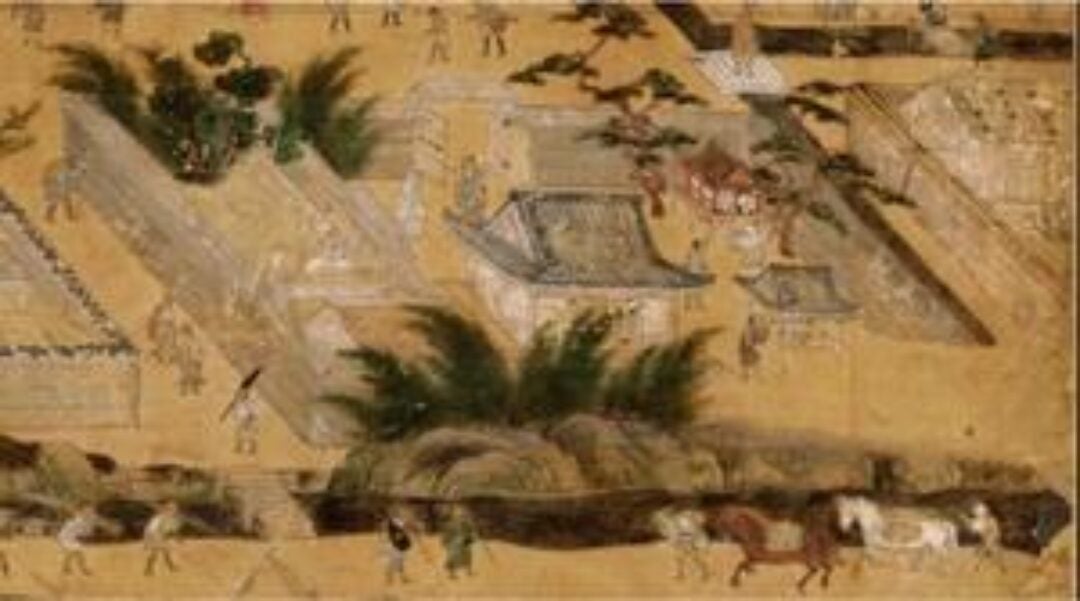
Prospective and Current Graduate Student Reception
Wednesday, March 9
2:00pm – 3:00pm
Via Zoom: https://usc.zoom.us/j/96904962804
(no registration needed)
Please join us to learn about the CPW community, upcoming seminars and other events.
Please email cpw@usc.edu if you have any questions.
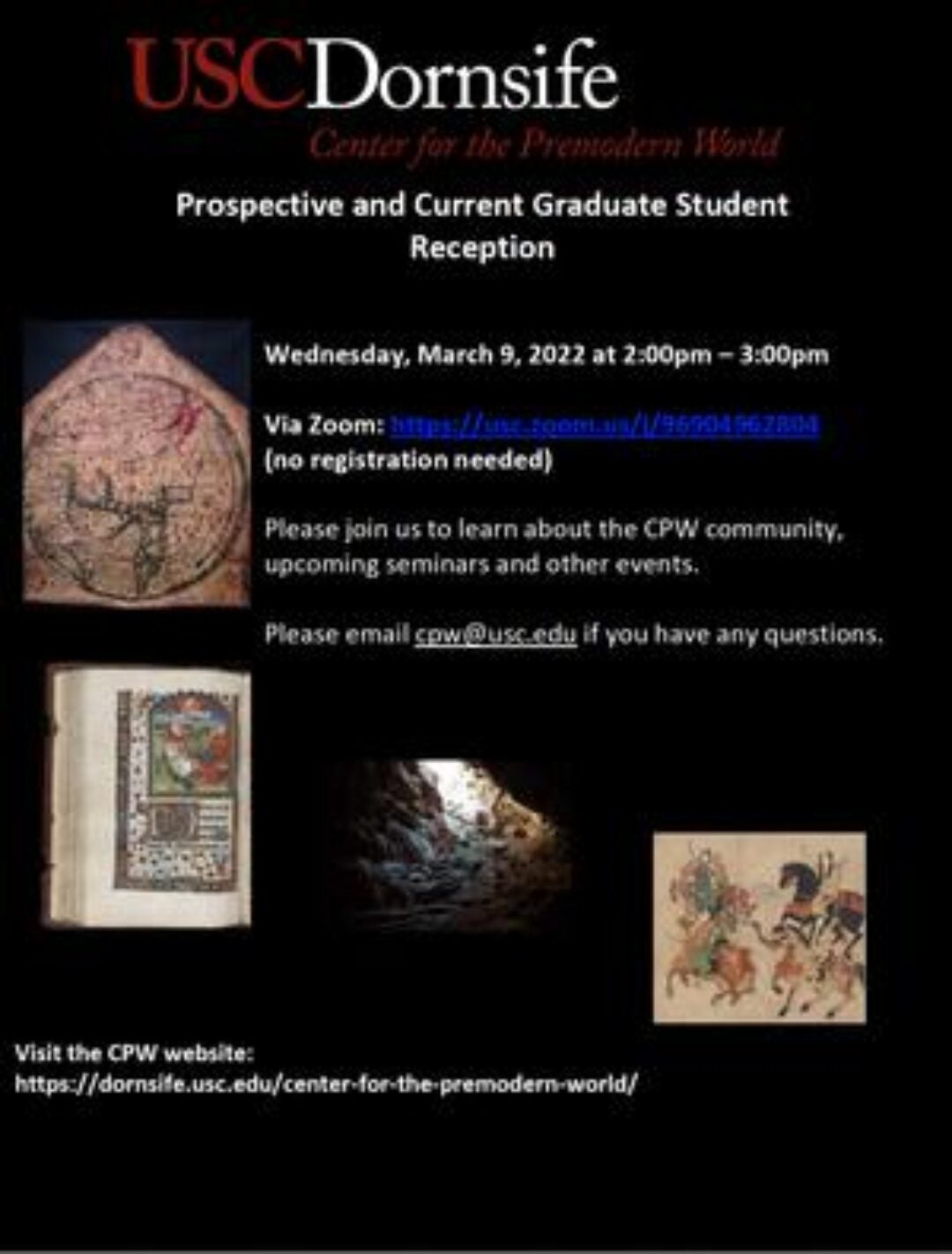
The Silk Roads: Connecting Communities, Markets, and Minds Since Antiquity
Lecture by Peter Frankopan, author of The Silk Roads: A New History of the World
Tuesday, March 1
4:00pm -5:00pm
in-person: Doheny Memorial Library (DML), Friends of the USC Libraries Lecure Hall, DML 240
The Silk Roads were networks that have played a crucial role in world history over many millennia. In this talk, Peter Frankopan will explain how to understand the connections that helped enable exchange, spread religions and ideas, and facilitate the spread of pathogens and disease from antiquity to the present day – and will talk about how to move away from Eurocentric readings of history.
This event is being held in conjunction with the opening of the Doheny Memorial Library exhibition “The Silk Roads: Connecting Communities, Markets, and Minds Since Antiquity,” which will be on view on the first floor of the library through May 31. This exhibition is the collaborative product of many people in departments, museums, and institutions at USC and beyond.
About the speaker: Peter Frankopan is Professor of Global History at Worcester College, University of Oxford and the Stavros Niarchos Foundation Director of the Oxford Centre for Byzantine Research, as well as Senior Research Fellow. He works on the history of the Mediterranean, Russia, the Middle East, Persia, Central and Southern Asia, and on relations between Christianity and Islam, focusing on connections and exchange. He is the author of The New Silk Roads: The New Asia and the Remaking of the World Order (2019), The Silk Roads: A New History of the World (2016) as well as The First Crusade: The Call from the East (2012).
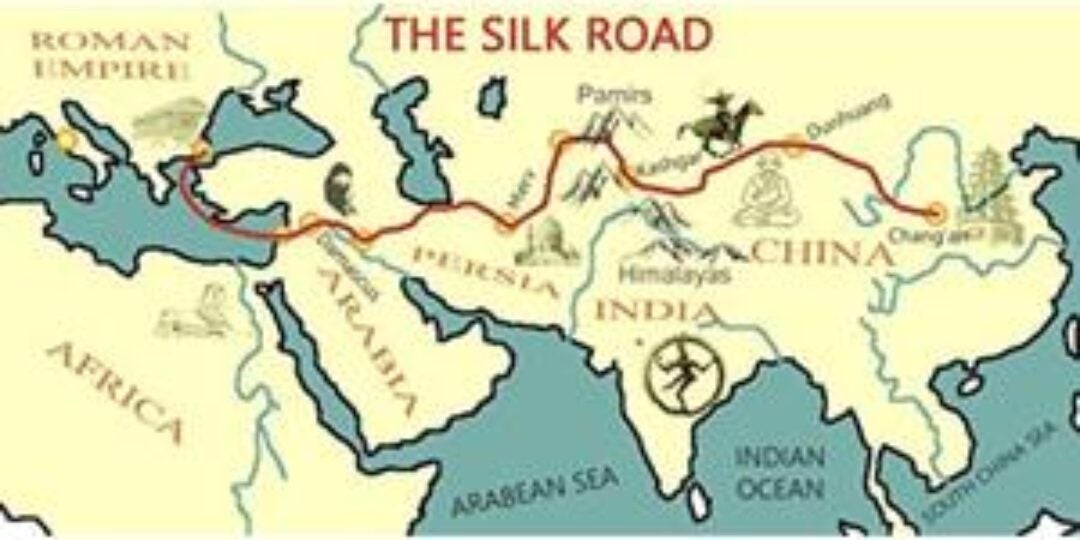
Comparing Premodern Empires: Methodology and Challenges
Thursday, February 24
2pm-3:30pm
This is a hybrid event:
in-person: SOS 250 | on-line: register HERE
Speaker: Laetitia Graslin-Thomé (University of Lorraine, France; USC visiting scholar in Classics, 2021-22)
Respondent: Peter Frankopan (University of Oxford, Professor of Global History, Worcester College)
Modern scholarship sometimes creates divisions between political structures or regions that were closely connected in the past. In order to try to understand why and how to overcome this tendency, this talk will present a research project focusing on the Hellenistic world during the second century. The Ptolemaic and Seleukid empires are often studied separately. However, comparing the two main kingdoms that emerge from Alexander’s conquest opens new perspectives. In the second century BC, after more than a century of existence, both empires were confronted with comparable problems: dynastic divisions, secessionist tendencies, challenges to the ideal of the victorious king. The solutions their kings found were sometimes similar, and sometimes not, because of their geographies, the political structures they inherited, and the variety of reactions of the local populations to the Greco-Macedonian conquest. Comparing how those two kingdoms faced the new challenges of the second century BC is a way to understand their respective organizations better. It also invites us to think further about the way scholars can work on historical questions over vast areas that were interconnected in ancient times and that scholarship tends to divide into pieces.
About the speaker: Laetitia Graslin-Thomé was trained at the Ecole Normale Supérieure (Paris) and Tours University (France), where she studied ancient history, Assyriology and economics. She is now an Associate Professor in ancient history at the Université de Lorraine, Nancy, France. She is currently on leave provided by the Institut Universitaire de France to support a five-year project called “Zeus in Marduk’s shadow: a study of the Hellenistic world in light of Near-Eastern evidence.” She is a visiting scholar at USC for the academic year 2021-2022. Her current work focuses on Hellenistic history, with a special interest in cuneiform sources. She coordinates the “Groupe d’étude des mondes hellénistiques” (GEMH), that gathers scholars working on the Hellenistic period. The group currently prepares a book on the changes experienced by Hellenistic states during the second century BCE. Professor Graslin-Thomé has also organized four international conferences on Hellenistic political history and co-edited five books on this topic. In addition to her interest in Hellenistic political history, she also published a book and several articles on the economic history of ancient Mesopotamia.
About the respondent: Peter Frankopan is Professor of Global History at Worcester College, University of Oxford and the Stavros Niarchos Foundation Director of the Oxford Centre for Byzantine Research, as well as Senior Research Fellow. He works on the history of the Mediterranean, Russia, the Middle East, Persia, Central and Southern Asia, and on relations between Christianity and Islam, focusing on connections and exchange. He is the author of The New Silk Roads: The New Asia and the Remaking of the World Order (2019), The Silk Roads: A New History of the World (2016) as well as The First Crusade: The Call from the East (2012).
Unfortunately the current restrictions prevent us from offering food during this event. However, we are able to provide a boxed lunch to anyone who is attending in person at 1:00pm in SOS 250 for pick up to enjoy it outside. Please RSVP to The Center for the Premodern World cpw@usc.edu by Tuesday, February 22 if you would like to order a boxed lunch.
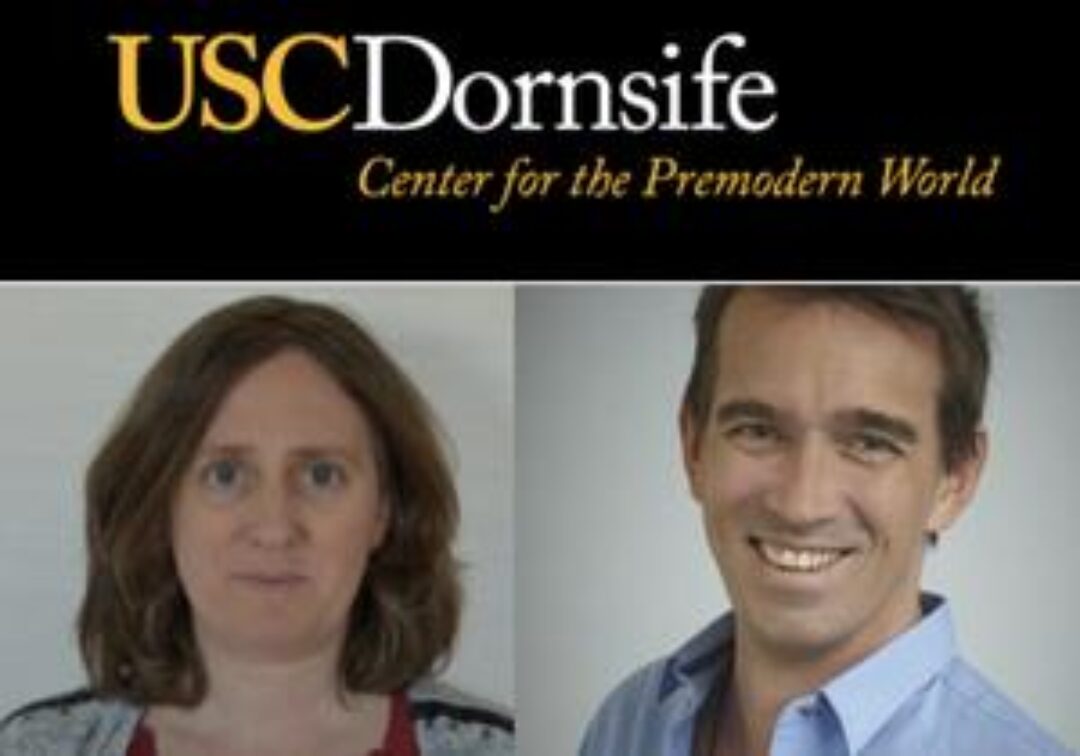
China’s Relations with the Outside World: From Silk Roads to Today
Wednesday, February 23
2:00pm – 3:30
on-line event, please register HERE
U.S. China relations have been continually redefined over recent decades, but these periodic transformations are only the latest version of a centuries-long learning process that has involved countless cultures from around the globe. Participants will enter into this fascinating and often bewildering dialogue to understand how current U.S.-China relations have reached a point as adversarial as it is interdependent.
This discussion is a partnership between the USC Dornsife Center for the Premodern World and the USC Dornsife Center for the Political Future.
Featuring:
- Peter Frankopan – Professor of Global History, Oxford University and Associate Director, Programme for Silk Roads Studies at King’s College, Cambridge
- Valerie Hansen – Professor of Chinese and World History, Yale University; Author, “The Silk Roads: A New History”
- David Kang – Maria Crutcher Professor in International Relations and Professor of International Relations and Business
- Mike Murphy (Moderator) – Co-Director, Center for the Political Future; NBC Political
- Michael Swaine Director, East Asia Program, Quincy Institute for Responsible Statecraft
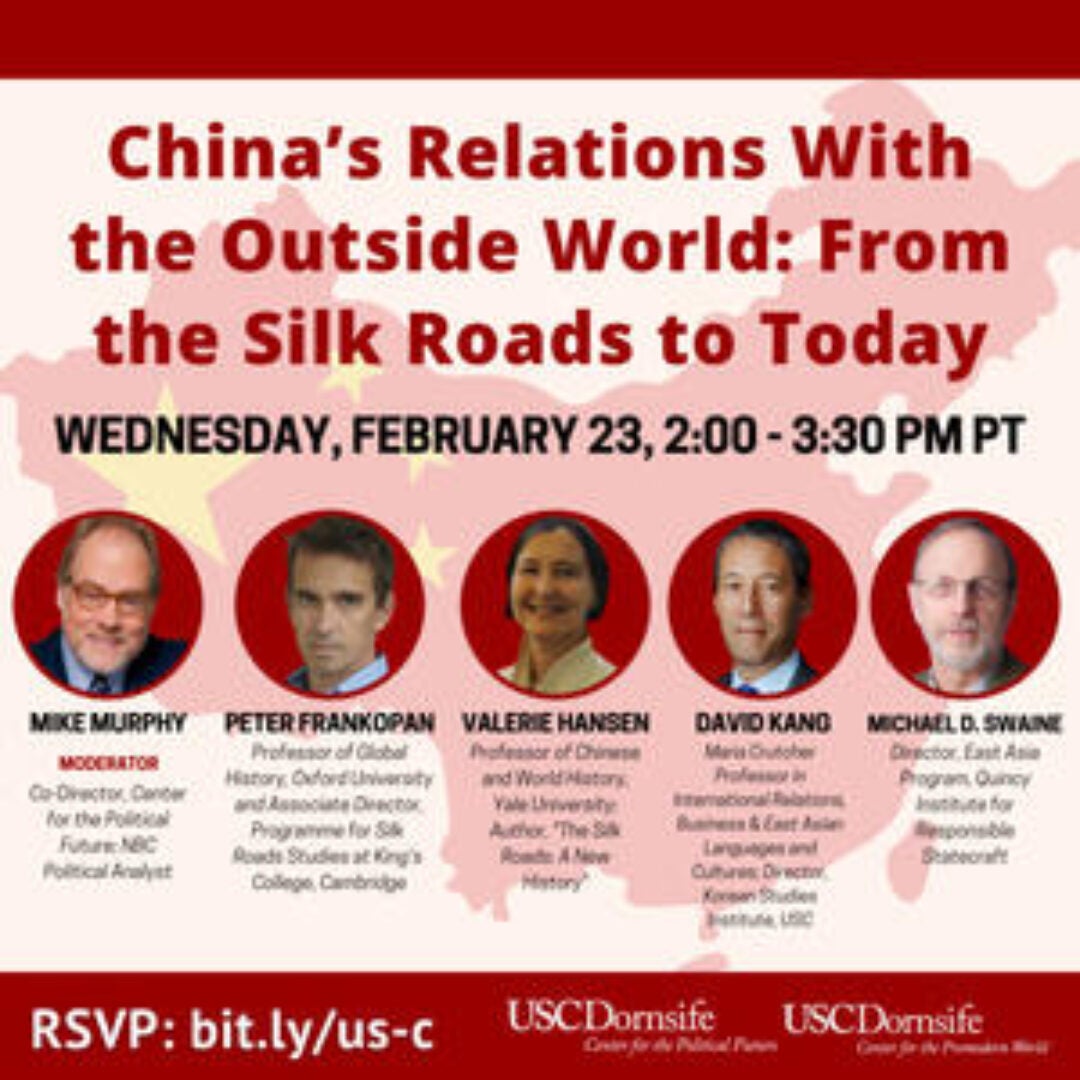
Why the Roman Imperial Accession Speech?
Monday, November 15 1:00 – 2:30pm PDT
in-person: SOS 250 | on-line: please register HERE
Speaker: Brandon Bourgeois (USC, Classics)

The accession speeches of new Roman emperors constituted a species of oratory that was commonplace in imperial transition and the polity’s rhythms of renewal. Despite or perhaps because of their reliability as political phenomena, detailed literary depictions of these addresses are relatively rare in our extant sources. Thus, the very existence of Roman imperial accession speeches in our sources calls for commentary. This talk unpacks the question posed by its title—“Why the Roman imperial accession speech?”—in three primary ways. First, why do depictions of Roman imperial accession speeches survive at all; that is, what historiographical or textual functions do these speeches serve when they happen to appear in our sources? Second, why did new emperors feel compelled to deliver these speeches; more specifically, what political functions did these introductory addresses serve for fledgling emperors? Finally, why study the accession speeches of emperors? In other words, what can we gain from viewing Roman history through the lens of imperial accessions and the speeches by which emperors introduced themselves to various segments of the citizen body?
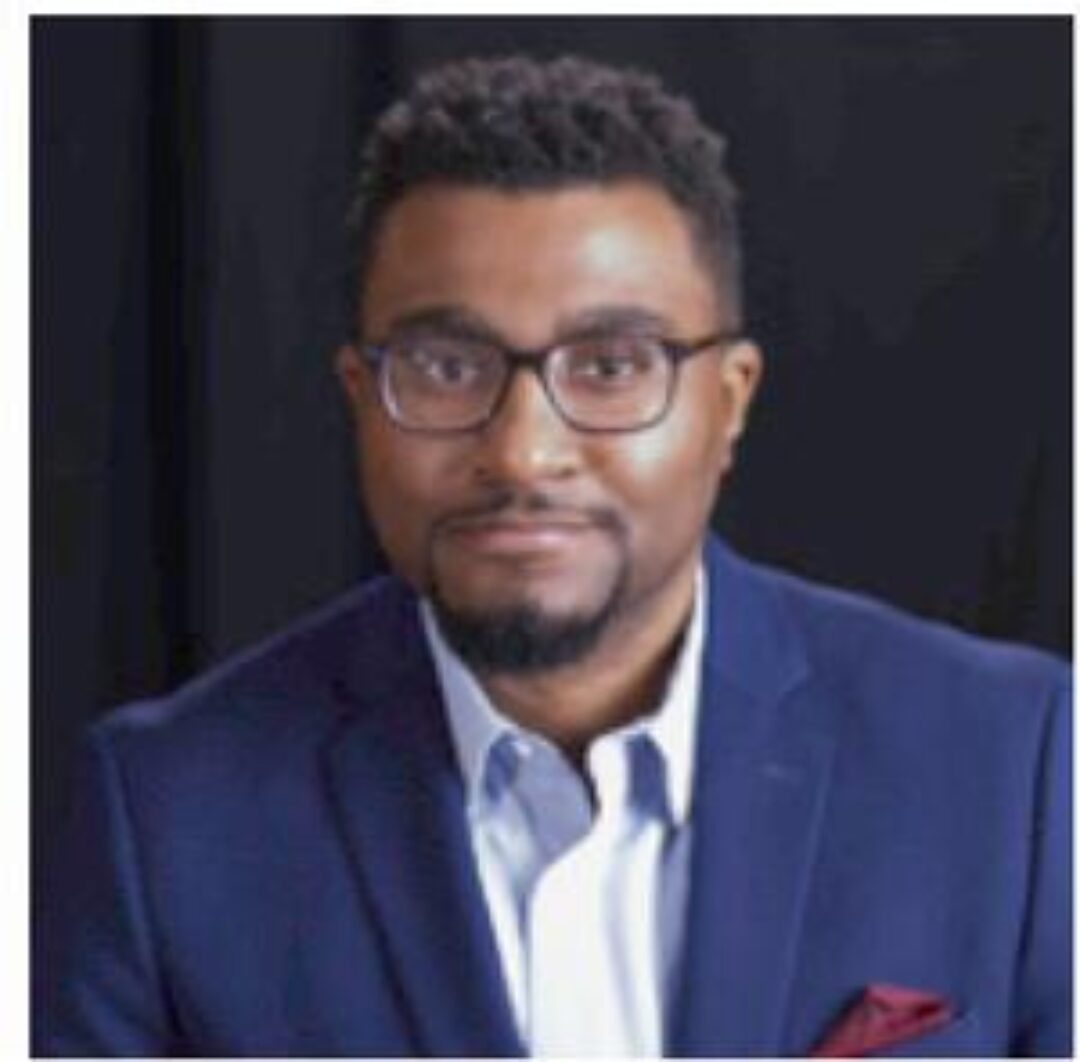
“A prophet in his own country”: Varro’s Sacred Spaces
Monday, November 8 2:00 – 3:30pm PDT
in-person: SOS 250 | on-line: please register HERE
Speaker: Joseph McAlhany University of Connecticut
In praising the intellectual achievements of his contemporary Marcus Terentius Varro, Cicero emphasized that Varro’s writings allowed Romans, who previously experienced the physical landscape of their city as nothing more than tourists, to finally know where and who they were. But if Cicero viewed these compilations of antiquarian information as a guidebook of sorts to the city and its sacred spaces, for Varro they were the creation of an alternative Eternal City he could inhabit, beyond the corruption and decay of Rome. Throughout his mostly fragmentary and wide-ranging corpus, including his major scholarly works on the Latin language and Rome’s religious and historical traditions, Varro fashioned a second life in letters not as savior of the city’s past, but prophet of its doom, culminating in his odd swan-song to his homeland, the pseudo-agricultural treatise De re rustica.
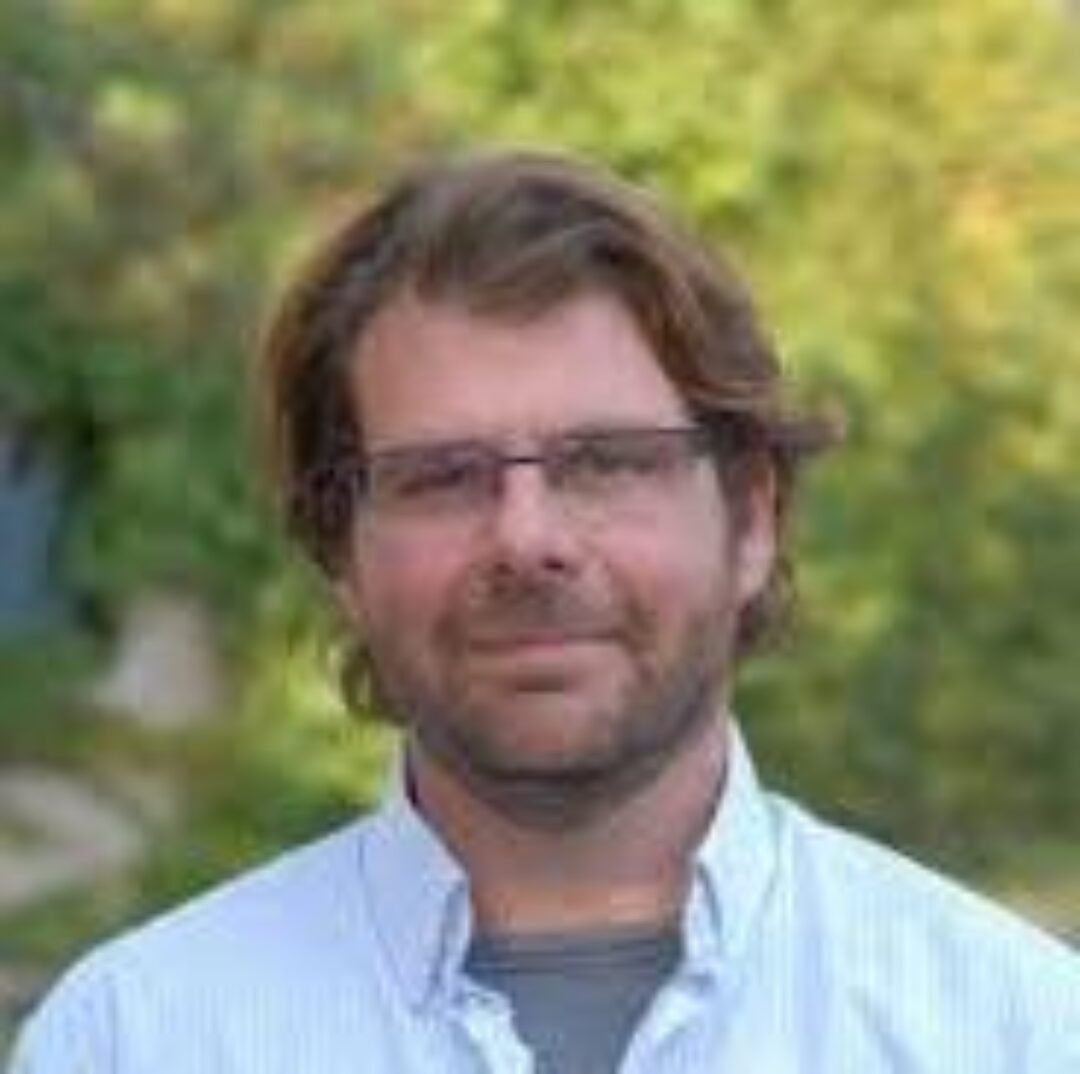
Quackeries born of heathen and hellish folly: Translating polemic across the Mediterranean
Monday, October 25 2:00 – 3:30pm PDT
In-person at SOS 250
On-line via Zoom, please register here.
Speaker: Sergio La Porta Fresno State University
The almost certainly apocryphal exchange of letters between the Byzantine Emperor Leo III (r. 717-741CE) and the Umayyad Caliph ʿUmar b. ʿAbd al-ʿAzīz (r. 717-720CE) has survived in a set of texts that span a range of places, times, and languages. Preserved in Armenian, Arabic, Castilian, and Latin, the different versions of this royal, religious-polemical correspondence not only bear witness to the irreducible connectedness of the societies that produced them, but testify to the enduring reality and relevance of religious disputation in all of them. Although each of these linguistic iterations differs from the other, they share a set of central concerns that revolve around the nature of scripture and its interpretation, and of who has the authority to validate Truth. This talk will untangle the threads that intersect these texts and the complicated questions they raise about textual transmission, enduring relevance, and religious pluralism.
About the speaker: Dr. Sergio La Porta is the Interim Associate Dean of the College of Arts and Humanities and the Haig and Isabel Berberian Professor of Armenian Studies at California State University, Fresno. He received his Ph.D. in Armenian and Near Eastern Studies from Harvard University in 2001. Prior to coming to Fresno, Dr. La Porta taught Armenian and Religious Studies at the Hebrew University of Jerusalem. His research interests include medieval Armenian intellectual and social history, philology, and apocalyptic literature.
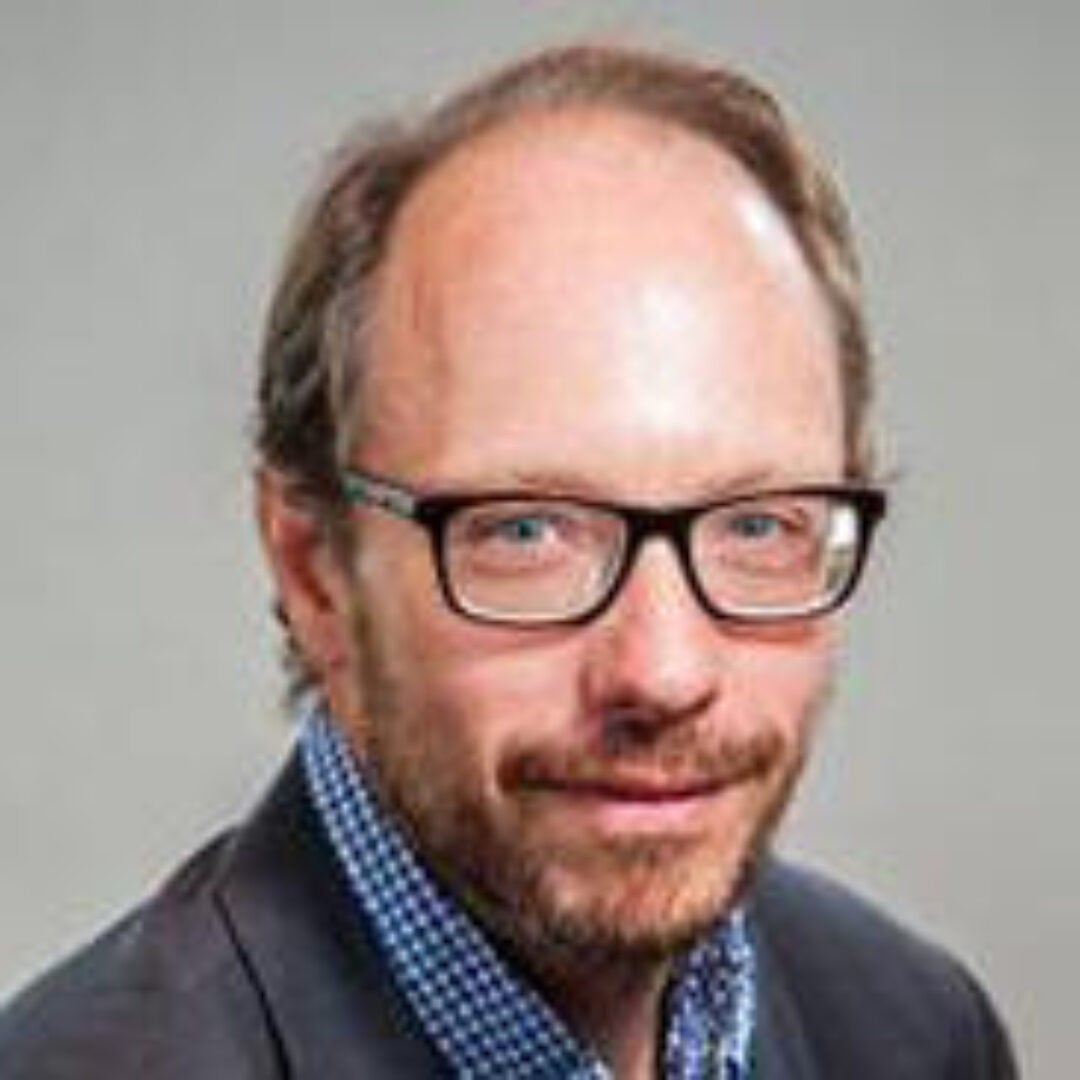
Empire Surrounded by Seas: Carolingian Images and Perceptions of the Sea
Wednesday, April 28 5pm PDT
Please register HERE
Speaker: Shigeto KIKUCHI, Associate Professor
Department of History, College of Literature
Aoyama Gakuin University
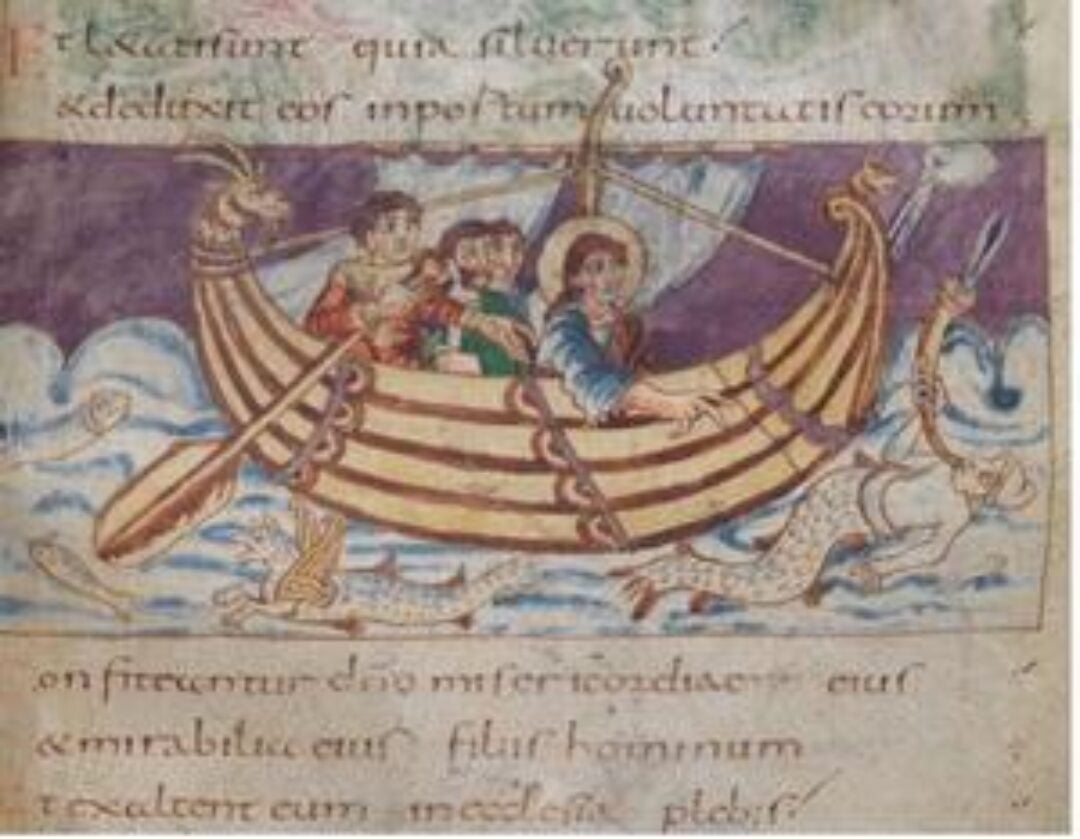
Capturing Northern River Goddesses for Deccan India
Speaker: Subhashini Kaligotla, Assistant Professor, Indian and South Asian Art, Department of the History of Art, Yale University
From as early as the seventh century CE, the northern Indian rivers, Ganga and Yamuna, featured in the political discourse of peninsular Indian kings. For the imperial Chalukyas, Rashtrakutas, and Cholas, capturing Ganga and Yamuna signified at once their conquest of north India and their status as transregional powers. This lecture examines the material record—specifically, the sculptural representations of these northern rivers, who were personified as beautiful goddesses at the thresholds of Deccan temples and monasteries. Looking at wider medieval practices involving the looting of images and iconoclasm, I ask how closely Deccan river goddess imagery can be associated with the rhetoric of political violence.
Speaker: Subhashini Kaligotla’s research focuses on sacred architecture—Buddhist, Hindu, and Jain—with emphasis on the ancient and medieval periods. Her forthcoming book, Shiva’s Waterfront Temples: Architects and their Audiences in Medieval India (Yale University Press, 2022), examines the creative resources of Deccan architects in dialogue with the response of their contemporary audiences. The book is an account of the shared cultural and aesthetic values that shaped built space in the medieval Deccan. A second book project, provisionally titled Seeing Ghosts, is interested in the iconographies of death and the afterlife in early Indian Ocean worlds. Kaligotla is also a practicing poet and author of the poetry collection, Bird of the Indian Subcontinent(2018).
Image: Yamuna, late 7th century, Lad Khan Temple, Aihole, Karnataka, India.
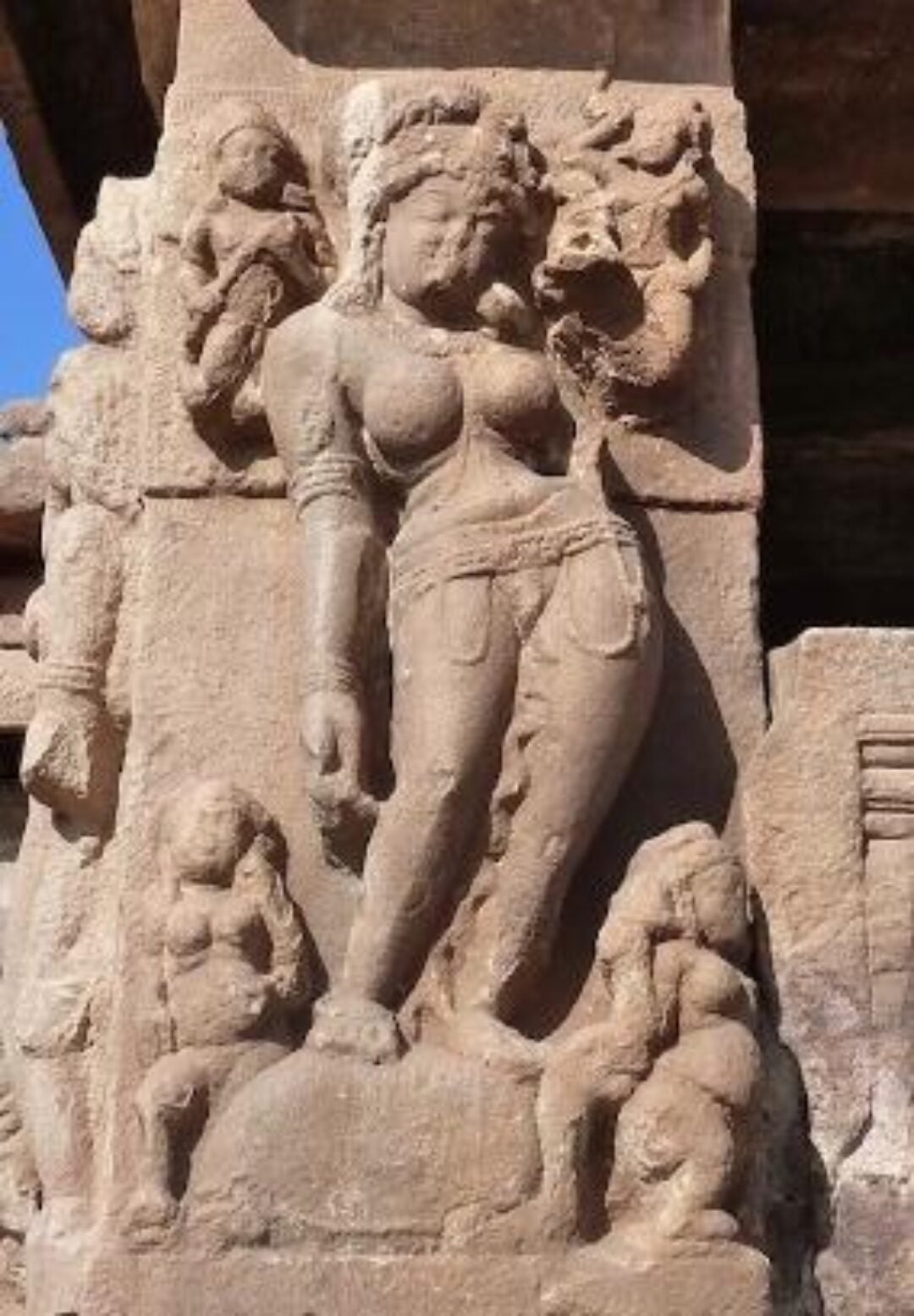
Cancel Culture in Antiquity: Confronting the Monumental Legacy of Rome’s “Bad” Emperor
Wednesday, March 31 at 5pm PDT
Please register HERE
Speaker: Eric R. Varner Ph. D., Assosiate Professor
Art History Department, Emory University
Ancient Rome developed its own form of cancel culture to deal with the monuments of condemned emperors whose memories were subjected to post mortem sanctions. Beginning in the first century CE strong traditions emerged for destroying, defacing, erasing and recycling the representations of overthrown rulers like Caligula, Nero, Domitian, Commodus and others. Mutilated and altered images were transformed on a widespread scale across media into powerful anti-monuments and counter-monuments within the memorial landscape of the ancient city.
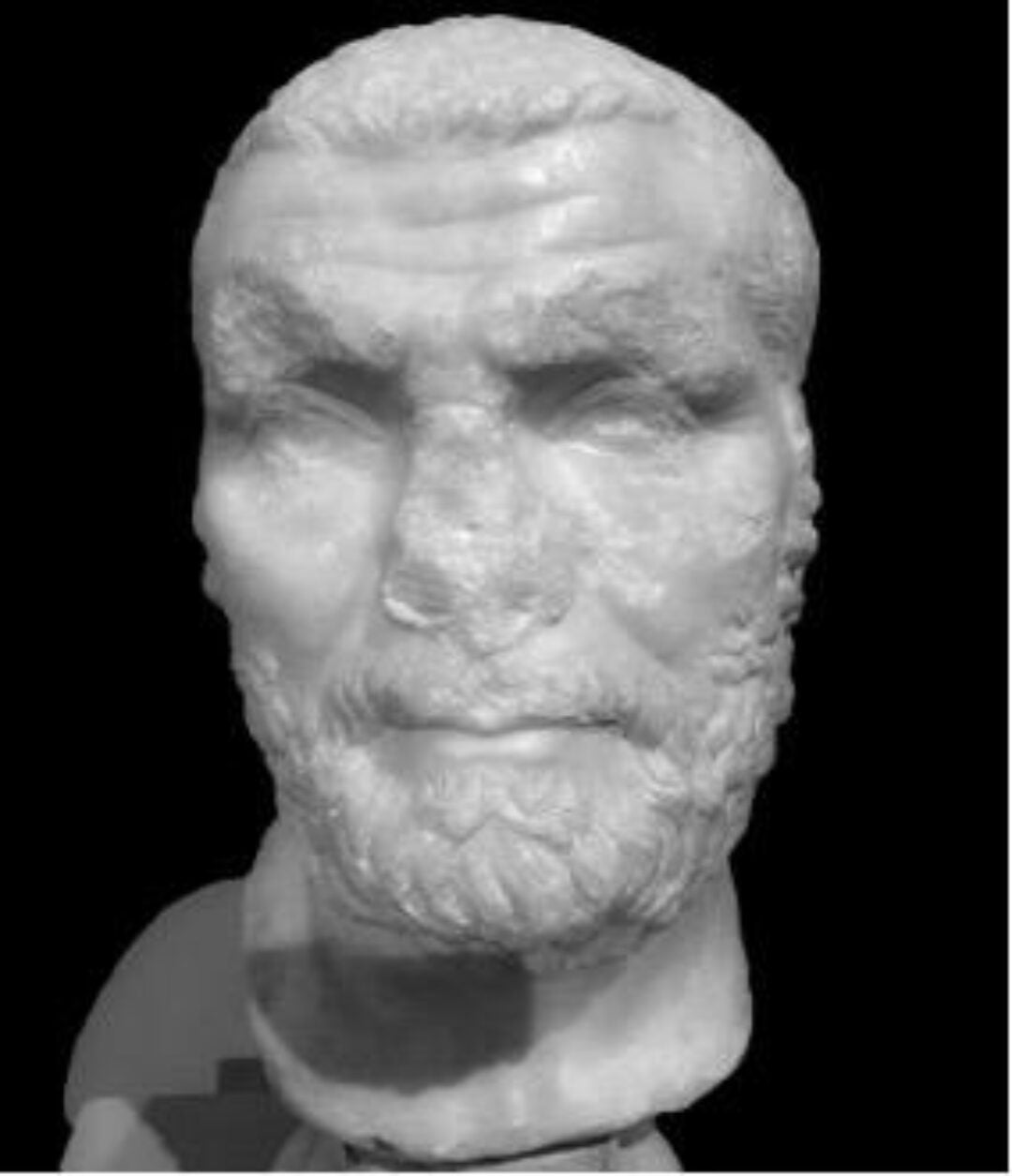
Conspiracies Then and Now | Day 1 | March 18 9am to 12pm
Day 1 | March 18 9am to 12pm
9:00 a.m. to 9:10 a.m. PST- Welcome
9:00 a.m. to 9:50 a.m. PST – Comparing the Politics and History of Conspiracy Theories from the Middles Ages to the Modern
This panel will explore how beliefs in conspiracies shaped the politics and psychology of the medieval world and our current political climate.
- Elizabeth A. R. Brown – Author, Professor Emerita of History at Brooklyn College, of the City University of New York
- Dallas Denery – Author, Professor of History at Bowdoin College
- Sara Gorman – Mental Health Expert; Author
- Norbert Schwarz – Provost Professor, Department of Psychology & Marshall School of Business; Co-director, USC Dornsife Mind & Society Center
- Moderated by Kamy Akhavan – Executive Director at the USC Center for the Political Future
10:00 a.m. to 10:50 a.m. PST – Conspiracies around Judaism: Anti-Semitism from the Medieval Era to George Soros
This panel will discuss how conspiracy theories regarding Judaism have perpetuated anti-Semitism and the treatment of Jewish people over the course of history. The Middle Ages witnessed the creation of some of the most pernicious stereotypes about Jews as well as accusations of ritual child murder and well poisoning. A reflexive intolerance toward Jews born of the same irrational antipathy continues to shape extremist activity in our own world.
- Sara Lipton – Professor of History at Stony Brook University
- Miri Rubin -Professor of Medieval and Early Modern History at Queen Mary University of London
- Steve Ross – Professor of History, Myron and Marian Casden Director of the Casden Institute for the Study of Jewish Role in American Life and Professor of History at the University of Southern California
- Roz Rothstein – Founder and CEO of StandWithUs
- Moderated by Bret Stephens – Pulitzer Prize-Winning Journalist; Author; Op-Ed Columnist at The New York Times; Former Editor in Chief of The Jerusalem Post.
11:00 a.m. to 12:00 p.m. PST – The Spread of Conspiracies: Heretical Groups to Social Media
This panel will discuss how conspiracy theories are born, grow, and reach mass audiences. Some historical experts say heretical groups are described in source materials as vast secret conspiratorial movements that spread verbally through fear and fevered imaginations. Modern scholars contemplate the roles of television, search engine algorithms, online advertising, bulletin boards, and social media for their contribution to the vast speed and reach of conspiracy theories.
- Christine Caldwell Ames – Professor of Medieval European History at University of South Carolina
- Karen Douglas – Professor of Social Psychology at University of Kent, United Kingdom
- Mark Pegg – Professor of History at Washington University in St. Louis
- Sinan Aral – Author, David Austin Professor of Management, IT, Marketing and Data Science at MIT, Director of the MIT Initiative on the Digital Economy (IDE)
- Moderated by Marc Ambinder – Executive Fellow in Digital Security, USC Annenberg School for Communication and Journalism
CLICK HERE to register in advance.
This event is a partnership with the USC Center for the Political Future and the USC Center for the Pre-Modern World.
This discussion will be live-streamed to the CPF Facebook page.
Email cpw@usc.edu for questions.
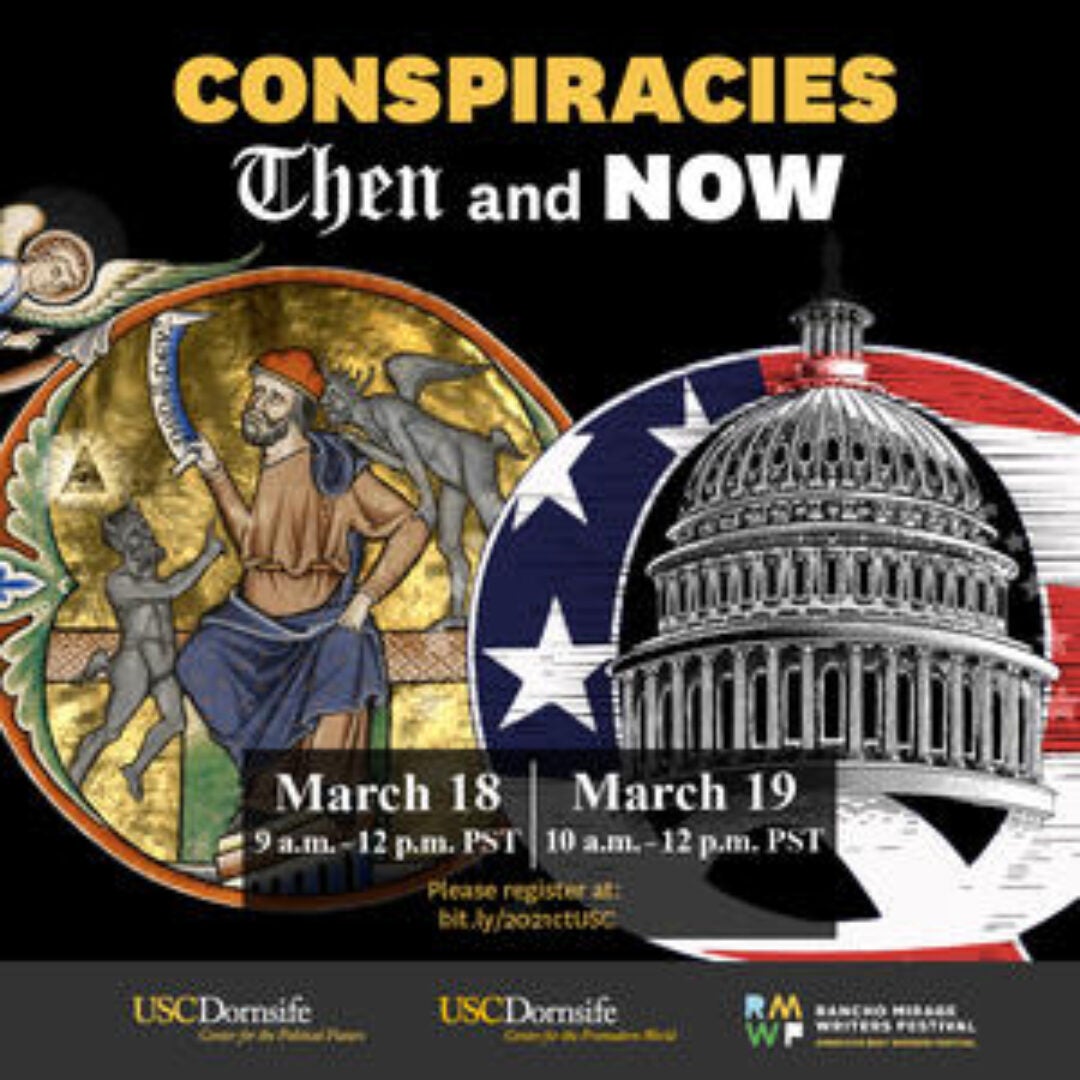
Conspiracies Then and Now | Day 2 | March 19 10am – 12pm
Day 2 | March 19 10am to 12pm
Conspiracy theories have captured the attention of people throughout history, and they have become especially influential in current politics. Some recent conspiracists have deliberately adopted the language of the Middle Ages to advance their agenda. In this conference we will break down the history of conspiracy theories dating back to the Middle Ages and compare them to contemporary beliefs. We’ll also discuss how the Deep State and QAnon theories influenced political messaging in the age of Trump. Each panel will conclude with an audience Q&A.
10:00 a.m. to 11:00 a.m. PST – Templars and the Deep State
The Templars were accused of worshipping Satan, witchcraft, and sodomy. They were one of the Latin West’s most trusted institutions, and then suddenly were condemned and accused of sodomy, witchcraft, and Satan worship, among other sins. Modern observers will explore how similar trends target America’s civic institutions, drawing on events from McCarthyism to the Kennedy assassination to 9/11.
- Sean L. Field – Professor of History at the University of Vermont
- Kristin Pichaske – Award-winning Filmmaker, “Pulling The Thread;” Associate Professor of Cinema and Television Arts at Columbia College Chicago
- Julien Théry – Professor of History, Université Lyon II Louis Lumière
- Michael Shermer – Author; Presidential Fellow at Chapman University
- Moderated by Robert M. Shrum – Director of USC Dornsife Center for the Political Future and Carmen H. and Louis Warschaw Chair in Practical Politics
11:05 a.m. to 12:05 p.m. PST – Apocalypse Then and Now: Millenarian Cults to QAnon
Apocalypse doesn’t just mean destruction. It can also mean a world remade—peaceful, prosperous, but born of social upheaval and torrential bloodshed. This panel will discuss these aspects of Apocalyptic and Millenarian cults in the Middle Ages and compare them to modern religious extremism and the contemporary conspiratorial mindset from Y2K to QAnon.
- Jay Rubenstein – Director, USC Center for the Pre-Modern World; Professor of History at the University of Southern California
- Sylvain Piron – Author, Director of Studies and Chair of Intellectual History of Medieval Societies at The School for Advanced Studies in the Social Sciences in Paris, France
CLICK HERE to register in advance.
This event is a partnership with the USC Center for the Political Future and the USC Center for the Pre-Modern World.
This discussion will be live-streamed to the CPF Facebook page.
Email cpw@usc.edu for questions.

Prospective and Current Graduate Student Reception
Tuesday, March 16 at 4:30pm – 5:30pm
Via Zoom: https://usc.zoom.us/j/94955110903
(no registration needed)
Please join us to learn about CPW community, upcoming seminars and other events.
Please email cpw@usc.edu if you have any questions.
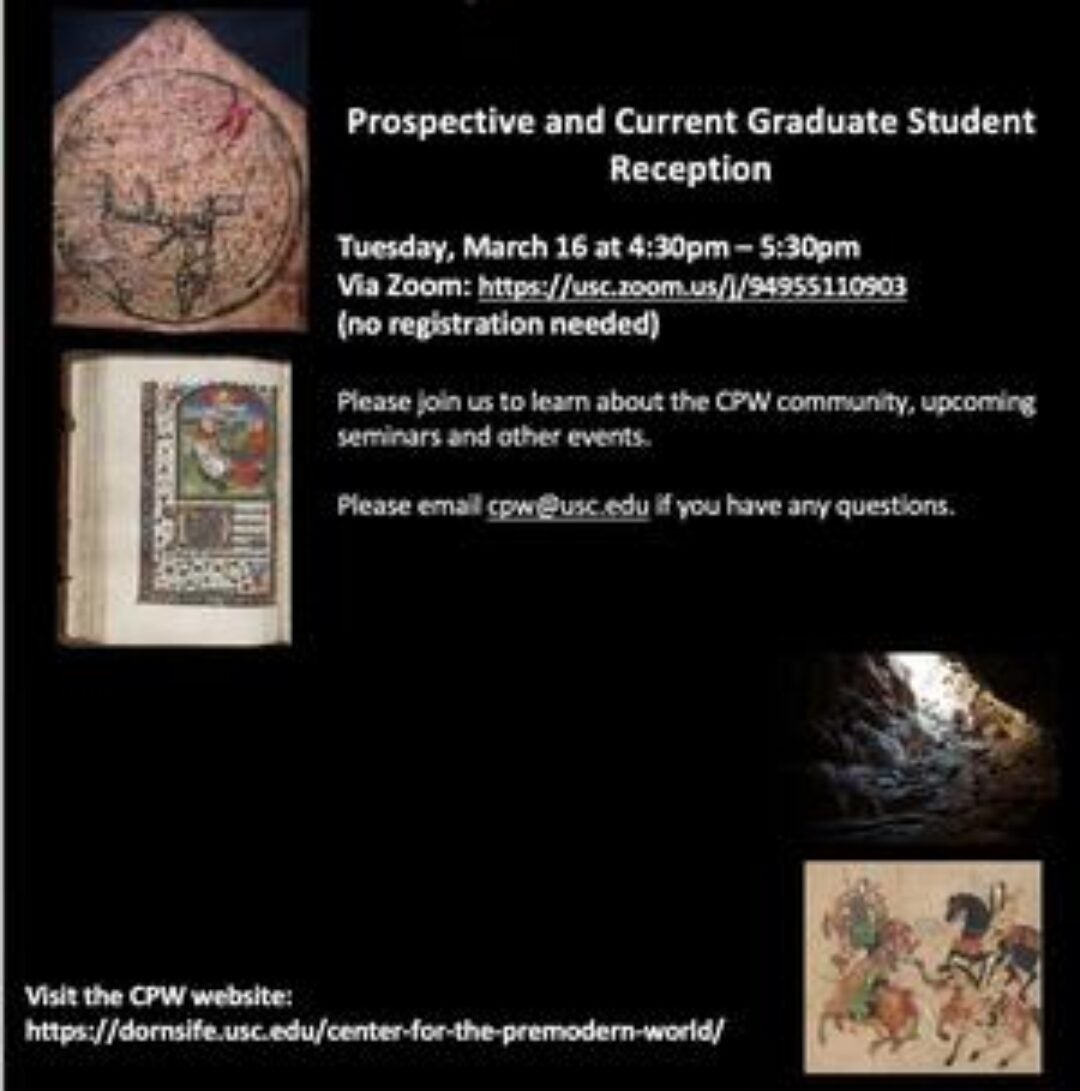
Etiologies of Women’s Suffering: Doctrinal Engagement with the Blood Bowl Hell in Late Medieval Japan
Friday, February 19 at 3:00pm (PT)
Please register HERE
Lori R. Meeks Associate Professor of Religion and East Asian Languages and Cultures
The apocryphal Buddhist Sutra Xuepen jing (“Blood Bowl Sutra”), produced in China during the eleventh or twelfth century, was imported to Japan by the early fifteenth century, where it came to be known as the Ketsubonkyō. This short text—only about 420 Chinese characters long—taught that women were bound for a special, purgatorial hell comprised of uterine blood. They were to be punished there for having polluted the earth with the blood of childbirth and menses. Cults to the sutra spread widely in Japan and became the basis of many devotional practices aimed both at saving women from the hell and at providing protection during the travails of female embodiment, especially childbirth.
Many have claimed that the Blood Bowl Sutra was always regarded as a “popular” text and that it was never taken seriously by the orthodox tradition; after all, it is short, clearly apocryphal, and lacking in doctrinal sophistication. This paper challenges that stance, demonstrating the degree to which Japanese monastic scholars, especially those of the Tendai establishment (which was widely acknowledged as the intellectual hub of premodern Japanese Buddhism), presented the ideas of the Blood Bowl Sutra as consistent with mainstream Buddhist doctrine. I also argue that these same priests were at least partially responsible for popularizing the sutra’s contents in vernacular literature.
The paper will be pre-circulated for registrants to read prior the discussion.
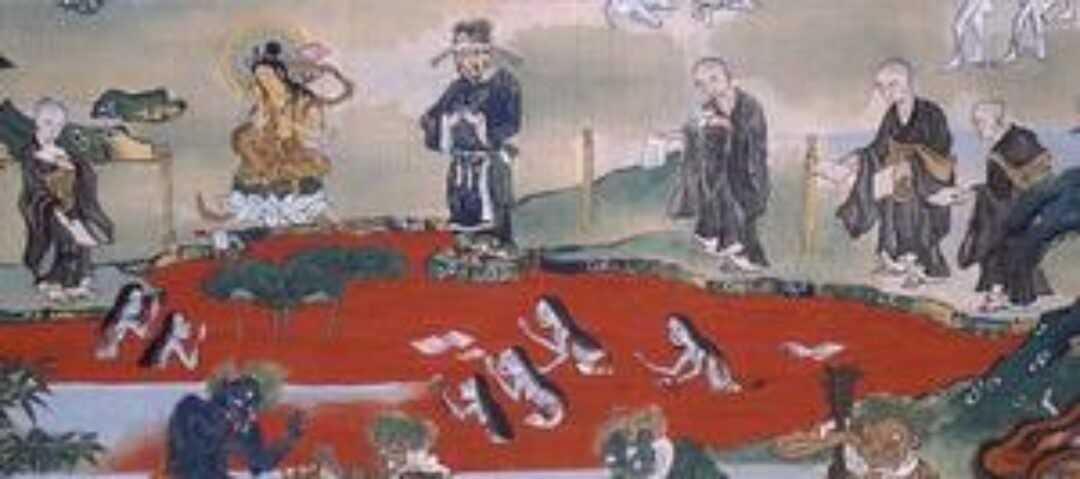
Toward a Religio-Environmental Ethics through Heritage Conservation in Postsocialist China
Sonya S. Lee (Associate Professor of Art History, East Asian Languages & Cultures, and Religion | Director of East Asian Studies Center)
Thursday, February 4 at 4:00PM | Please register HERE
In recent years, several high-profile restorations of centuries-old Buddhist monuments in southwest China have raised questions about the value and method of preserving religious icons in a society that reveres tradition but also has a long history of heritage destruction. Focusing on the case of the Laitan Buddha in Hechuan, this lecture brings a sustainability perspective to the debate by discussing how conservation practices and community involvement can contribute to a religio-environmental ethics that encompasses both nature conservancy and cultural preservation.
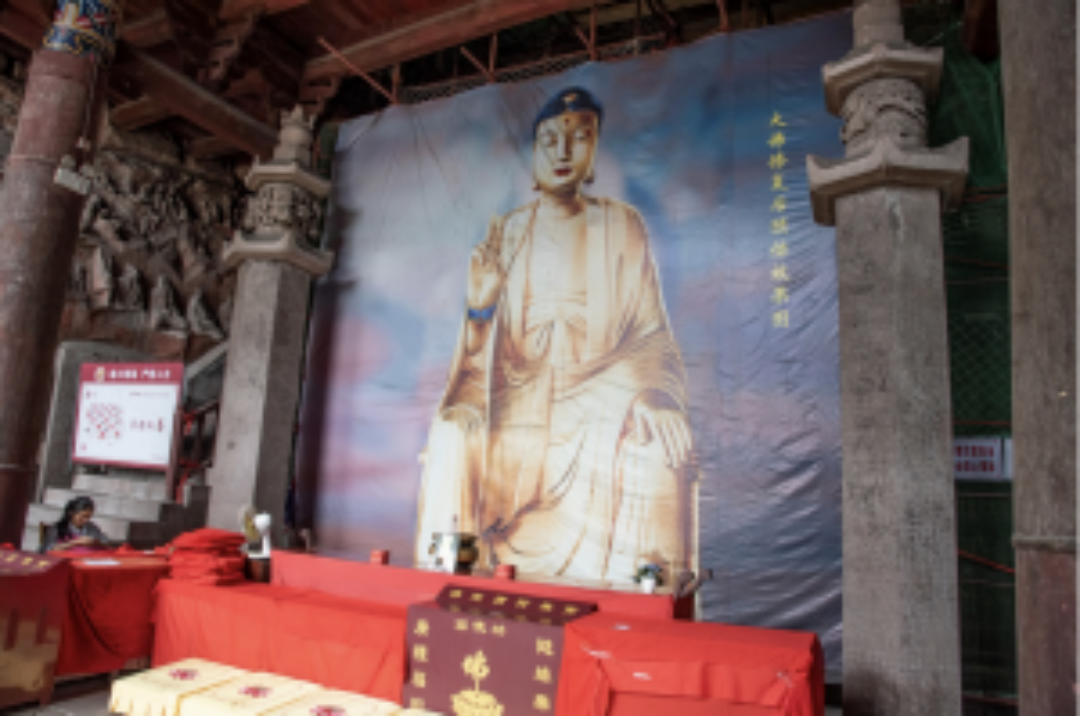
“Moving through Sacred Ground: Dance and Gesture in Relief Sculpture.”
By CPW Postdoctoral Fellow, Dr. Carolyn M. Laferrière
Monday, November 16 – 4:00pm (Pacific)
PLEASE REGISTER HERE
Going beyond the conventional association of sacred ground with religious sanctuaries and their landscapes, first-century BCE Neo-Attic reliefs from ancient Greece challenge us to locate sacred ground in the visual planes in which stylized mythological scenes occur. Current scholarship on this corpus of reliefs has focused on establishing typologies, chronologies, and iconographies; the reliefs’ theological and aesthetic significance, however, has been largely overlooked. How might we understand the significance of the distinctive visual style used in these images of divine and mythological subjects? Do the archaizing scenes attempt to recapture an idealized, yet lost and remote, religious landscape? Or do they draw upon Archaic and Classical religious imagery that visually established connections between human and divine beings, in order to elaborate new aesthetic modes of experiencing the divine? Dr. Laferrière will argue that the gods’ interconnected gestures and postures depicted on Neo-Attic reliefs determine the boundaries of the sacred ground that surrounds them, even as their expressive movements expand the limits of that space, offering their viewers an immersive experience of sacred ground as mediated through visual representation, music, and dance.
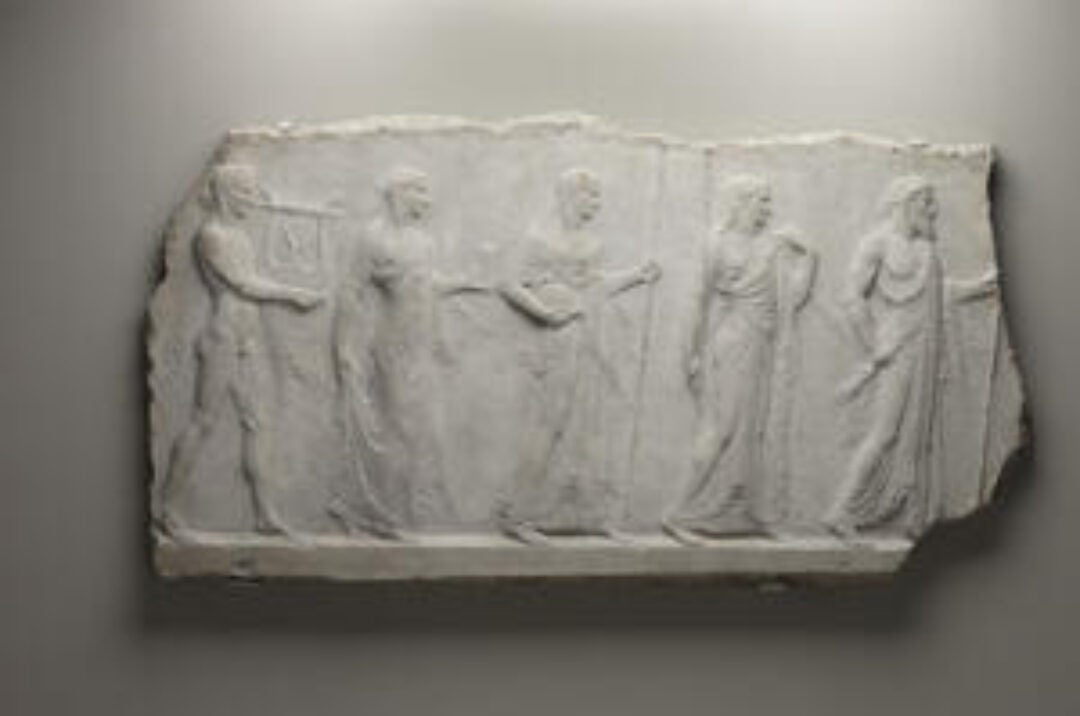
“What can natural archives tell us about the history of Hellenistic Egypt and Babylon”
Monday, November 9, 2020
1pm-2:30pm lecture |Register for this virtual event HERE
This paper examines the ways in which the ongoing development of natural archives can be brought to bear to advance and complement existing understandings of human history. Here, we will specifically study the examples of polar ice cores and Ptolemaic Egypt of 305-30 BCE, with additional consideration of Babylon in the same period. Polar ice-cores have long been used to extend our histories of climate-altering volcanic eruptions, which often took place in periods and regions for which little well-dated written evidence is available before the early modern period, e.g. many regions of the tropics. These ice-cores reveal past volcanic events by capturing the atmospheric fallout of anomalous levels of sulphate in annually forming layers of polar ice. But it is only since 2015 that the counting of these layers has been achieved with enough accuracy and precision for the Ancient period to be of use to historians. By reading this new archive in combination with written records, it is possible to first show the impact of major eruptions on the economically critical summer flooding of the Nile and Euphrates, and to trace these economic impacts (as well as potential psychological and religious impacts) on Egyptian and Babylonian societies, in the form of changing commodity prices, sales of land, increased conflict, the issuance of priestly decrees, royal edicts and petitions for relief and redress following failed harvests or acts of theft and violence. With multiple large eruptions occurring in this period, these findings suggest that volcanically induced “hydroclimatic shocks” should be seen as recurrent influences on society, but should also be seen as acting via pre-existing vulnerabilities that reduced social resilience.
About the speaker: Francis Ludlow (Trinity Centre for Environmental Humanities, Department of History, Trinity College, Dublin) Principal Investigator of the IRC Laureate Award-funded project “Climates of Conflict in Ancient Babylonia” (2018-2022) and Co-PI of the U.S. National Science Foundation-funded project “Volcanism, Hydrology and Social Conflict: Lessons from Egypt & Mesopotamia” (2018-2022).
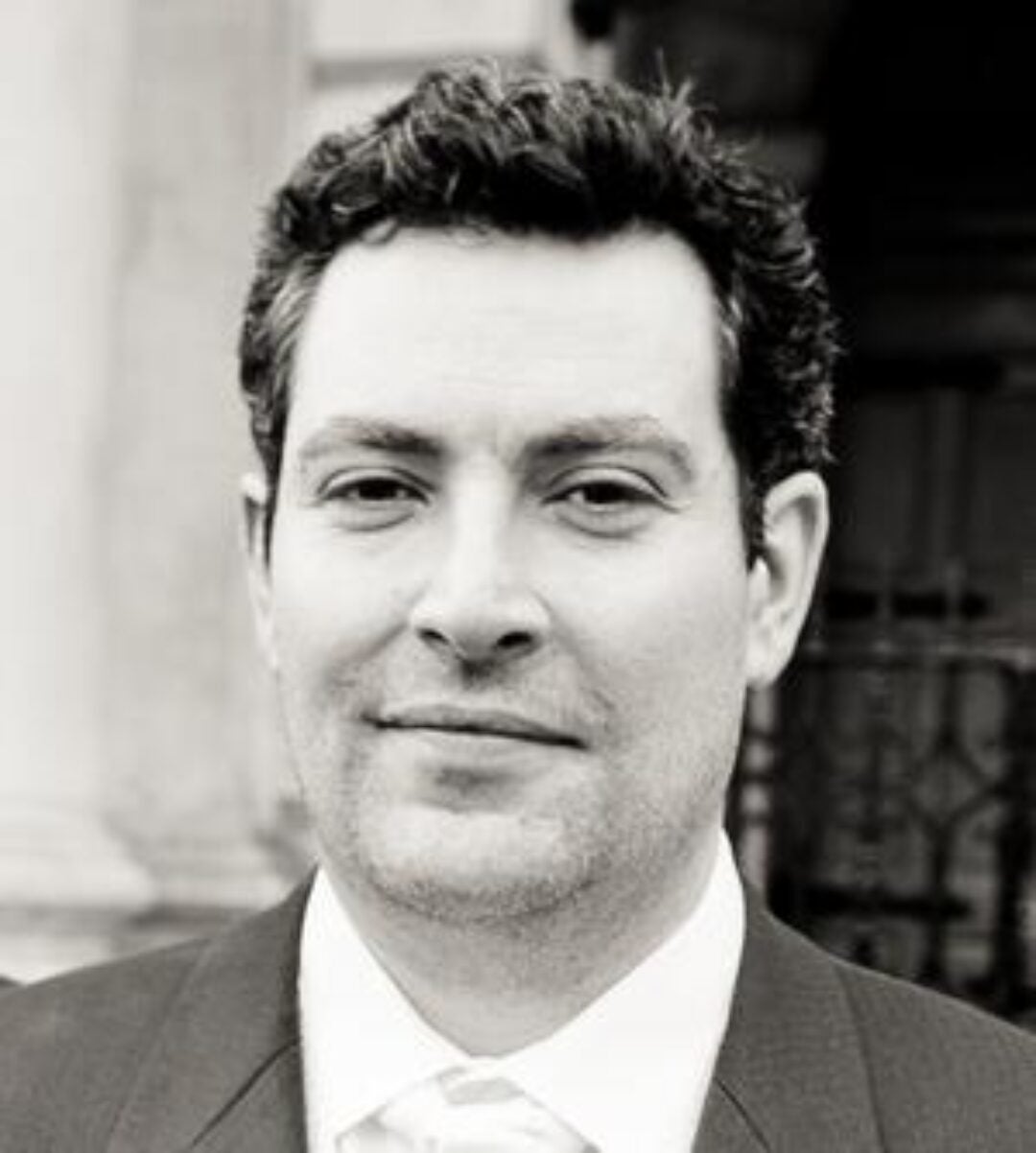
“Classicism and the Statue Crisis in the age of Black Lives Matter”
Wednesday, October 28
4:00PM Lecture | Register for this virtual event here
Speaker: Professor Verity Platt, Cornell University
We are living in an age of “Fallism”, in which the destruction or removal of statues of discredited historical figures has come to play a vital role in decolonizing and social justice movements. Classics scholars have been keen to draw parallels with iconoclasms of the past, from Roman damnatio memoriae to the Protestant Reformation. But what good do such parallels and genealogies serve at a time when the academy is also facing a reckoning with its own institutional racism? When the foundations of western monumentality are being so profoundly challenged or egregiously appropriated, what might scholars of that tradition contribute to the debate? Drawing on recent events – from the felling of Edward Colston’s statue in Bristol, UK, to Trump’s recent Executive Order for “Monuments to American Heroes” – this lecture explores the ethics and limitations of classical art history at a moment of political and disciplinary crisis.
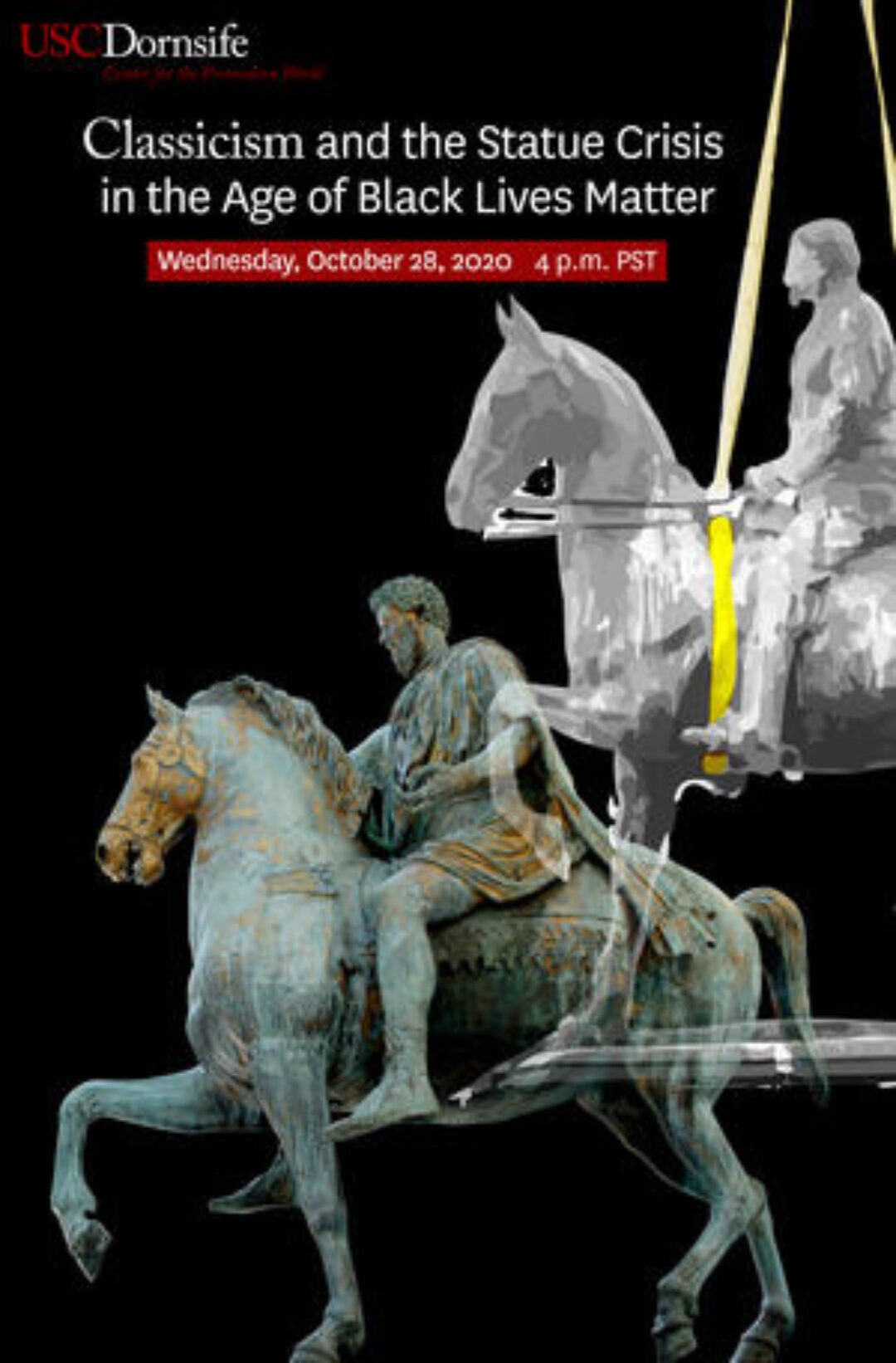
“Setting the Scene and Referring to the Script: Aristocratic Performance and the Eastern Theater of Crusading Conflict”
Wednesday, October 14
4:30PM (PST) | Zoom
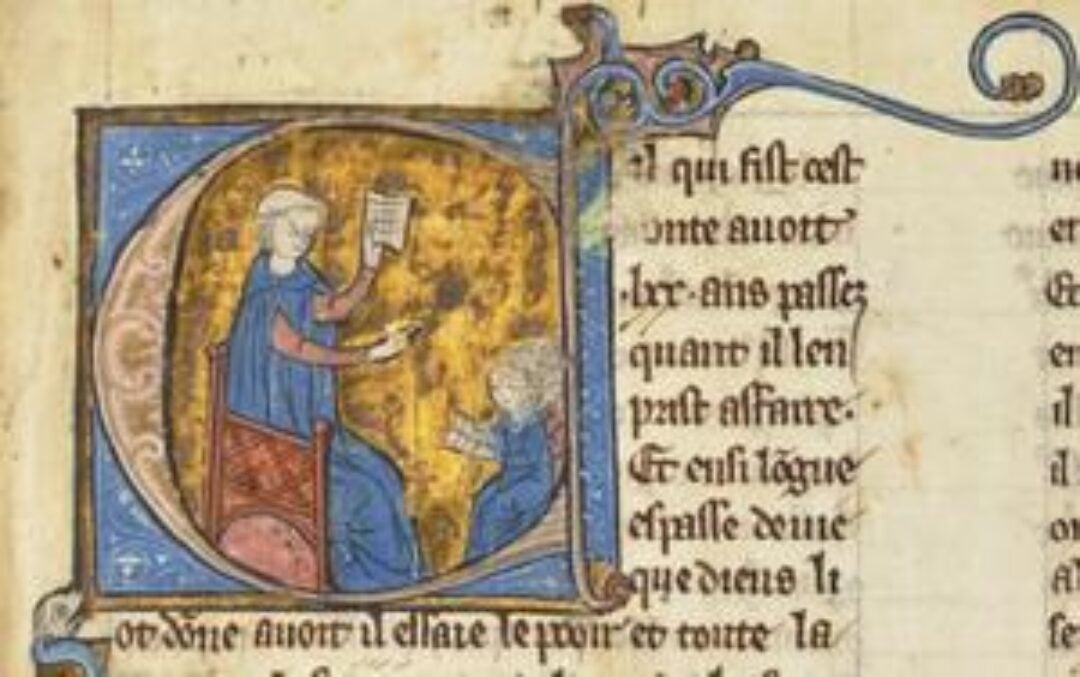
Forging Antiquity: Dares the Phrygian, “First Pagan Historian”
Wednesday, September 23, 2020
2pm-3:30pm lecture |Zoom
Frederic Clark (USC Classics and Stanford Humanities Fellow 2020-2021) shows how different cultures have remembered the greatest war story ever told.
The First Pagan Historian traces the reception history of a text that is now largely neglected but once occupied a central role in the ancient canon—the History of the Destruction of Troy of one Dares the Phrygian. Although Dares claimed to have been an eyewitness observer of the Trojan War, in reality he was an ingenious forger, who mimicked the tropes of ancient historiography and fabricated his connection with the remote past. Through the Middle Ages, the Renaissance, and the Enlightenment, I chart the surprising twists and turns in the afterlife of an author long labeled the first of the pagans to write history. In this talk I will highlight some of the principal episodes and arguments of the book. In particular, I examine the subversive challenge that Dares posed to other ancient canonical traditions (especially Virgil), and the manner in which Dares’ bold rewriting of the Troy story enabled centuries of readers—both premodern and modern—to reimagine the relationship between fact and myth, history and fiction.
About the speaker:
Professor Clark (Classics, USC) is a cultural and intellectual historian who specializes in the afterlife of classical antiquity in medieval and early modern Europe. His research examines how the reception of the ancient past has informed—and continues to inform—practices of humanistic scholarship. His book on the first pagan historian is coming up with Oxford University Press later this fall.
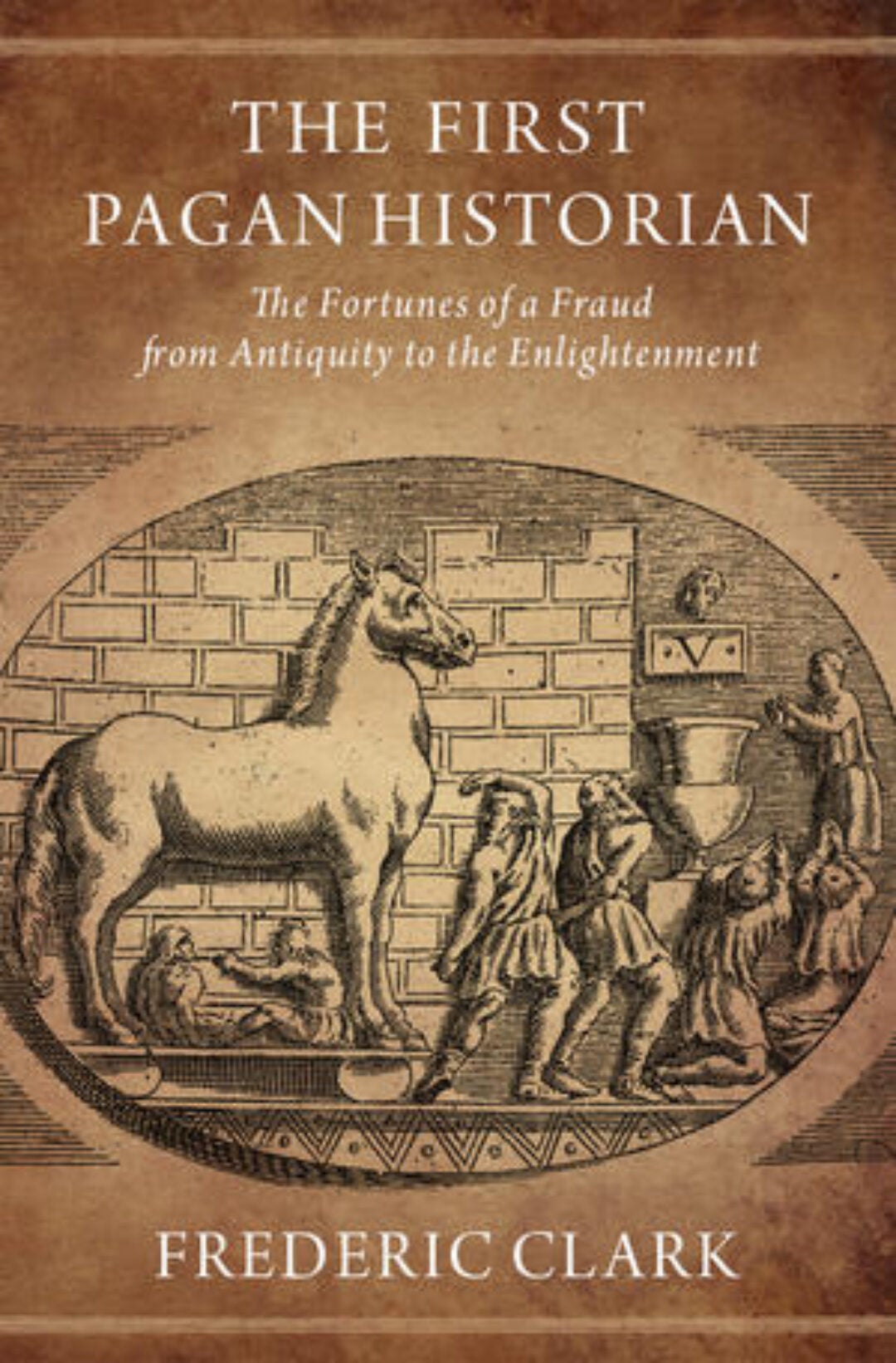
“Medieval Indigeneity: Alexander the Great in Ethiopia”—A Lecture by Suzanne Akbari
Thursday, February 27, 2020
Doheny Memorial Library (DML)
2nd Floor, Room DML 241
Suzanne Conklin Akbari (Institute for Advanced Study) has expanded the range and methods of exploring texts from the Middle Ages, pushing the boundaries of traditional readings and exploring shared histories. Her research has traced the evolving relationship between sight and knowledge as manifested in a range of poetic texts, explored the relationship between Islam and Christianity, challenged the notion of medieval European literature’s insularity, and highlighted the influence of Arabic poetry, music, and philosophy.
